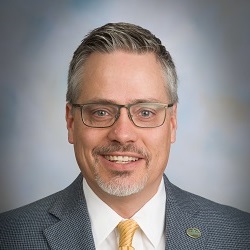Our partners include expert evaluators who assess applicant proposals and are selected for their experience and expertise. Evaluators thoroughly review each application using a scoring rubric, and each applicant team receives feedback from a minimum of five evaluators to help them strengthen their approach and solutions.
Past evaluators:
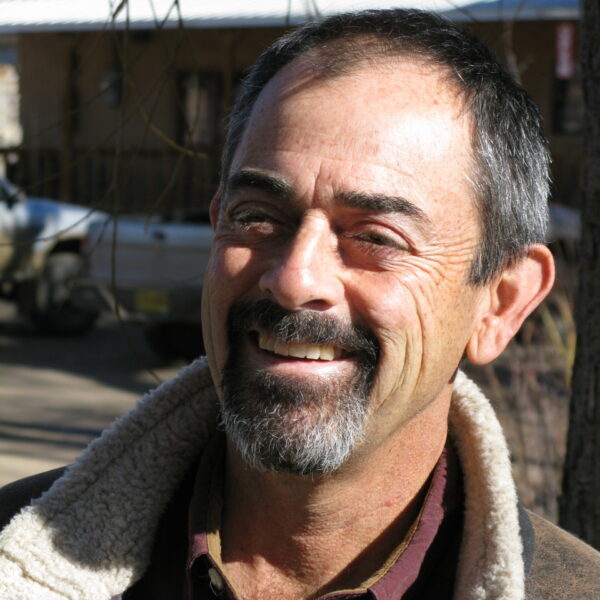

Ernie Atencio

Ernie Atencio is a native Norteño who grew up displaced in inner-city Denver but eventually found his way back home. He has worked throughout the West as a wilderness instructor, park ranger, environmental educator, and journalist. Ernie is currently Southwest Regional Director for National Parks Conservation Association and spent many years as executive director of Taos Land Trust and in a variety of other conservation and consulting work. With a master’s degree in applied cultural anthropology and a lifelong interest in remote landscapes and traditional cultures, he has spent years exploring wild places and promoting the connections between land and culture, researching and writing about sustainable development on the Tibetan Plateau, Havasupai oral history, Navajo forestry, cowboy culture, and Norteño resource stewardship. Ernie’s publications and conservation work have been recognized with several awards and he lives next door to the Rio Grande del Norte National Monument just north of Taos.
Ernie Atencio
Southwest Regional Director, National Parks Conservation Association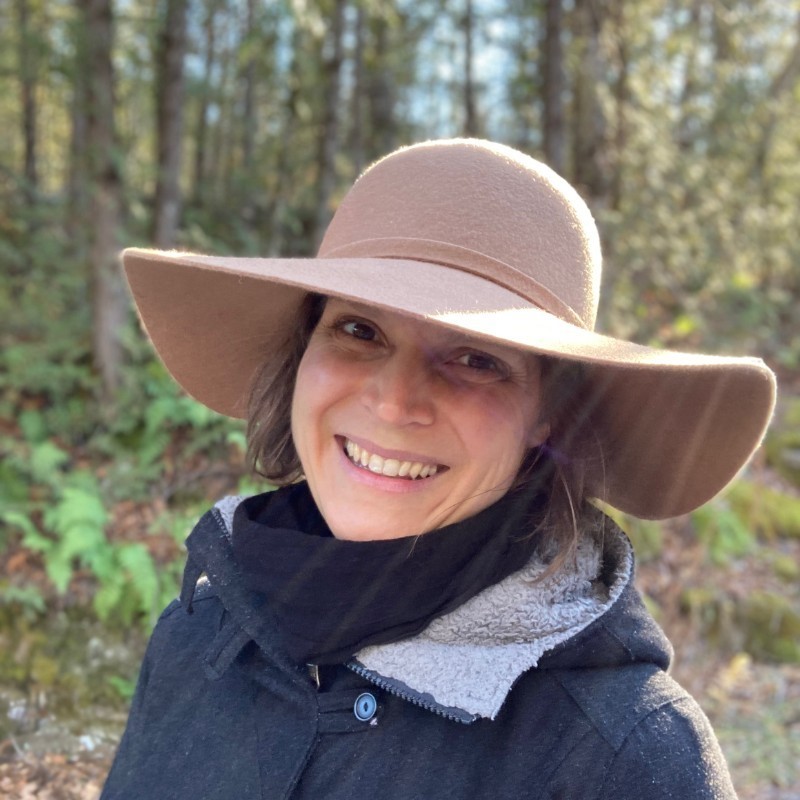

Laurel Atkinson

Laurel is Environment Program Director at The Waltons Trust, a limited-life Canadian grantmaking foundation. In this capacity, she helps to direct and inform the Trust’s grantmaking in the areas of land conservation and sustainable farming and forestry.
Previously, Laurel was Northern Program Director at Weston Family Foundation, providing strategic grants management to the Foundation’s northern-focused grants. Before working in philanthropy, Laurel managed programs for community-based non-profits and worked in government. Her first career was as an outdoor educator and canoe guide, where she was fortunate to have experienced many remote and unique Canadian rivers and landscapes. Laurel holds a BAH from the University of Guelph in International Development (minor in Biology) and a Masters of Environmental Studies degree from York University.
Laurel loves nordic skiing and trail running in the forests in and around her hometown of Peterborough, Ontario.
Laurel Atkinson
Program Director, Environment, The Waltons Trust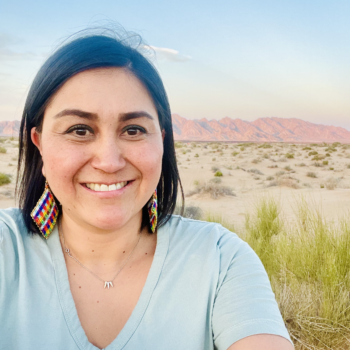

Ana Laura Barillas Gómez

Ana Laura Barillas Gómez has more than 15 years of practical experience in conservation, developing in operational, technical, and leadership roles. She is committed to developing high-impact projects through close partnerships and alliances with strategic partners, efficient budget management, and effective communication channels.
Ana has a Master in Science from the Universidad Nacional Autónoma de México (2007) and she obtained her B.S. degree (2004) from the Universidad de las Américas Puebla with a major in Biology (with honors) and a full scholarship. Before 2007, Ana collaborated with different conservation projects as a research assistant in other Mexican Protected Areas (PA).
Ana joined the Mexican Fund for the Conservation of Nature (FMCN) in 2007 as a technical assistant of the Fund for Protected Areas; in 2011, she became coordinator; and in 2014, Director of the Protected Areas Conservation Program. Since March 2016, she is also responsible for coastal and marine initiatives. And since 2021, Ana has been the Conservation Director; her responsibilities include raising funds for the Mexican System of PA, fostering sustainable coastal development and fisheries management in the Gulf of California and Northwestern Mexico, identifying potential projects, enhancing collaboration between civil society organizations and government agencies, supporting grantees’ capacity building needs and leading the PA learning community. Under her leadership, FMCN has signed with German Development Bank two key projects for PA with an investment of more than 30 mi USD.
Ana Laura Barillas Gómez
Conservation Director, Fondo Mexicano para la Conservacion de la Naturaleza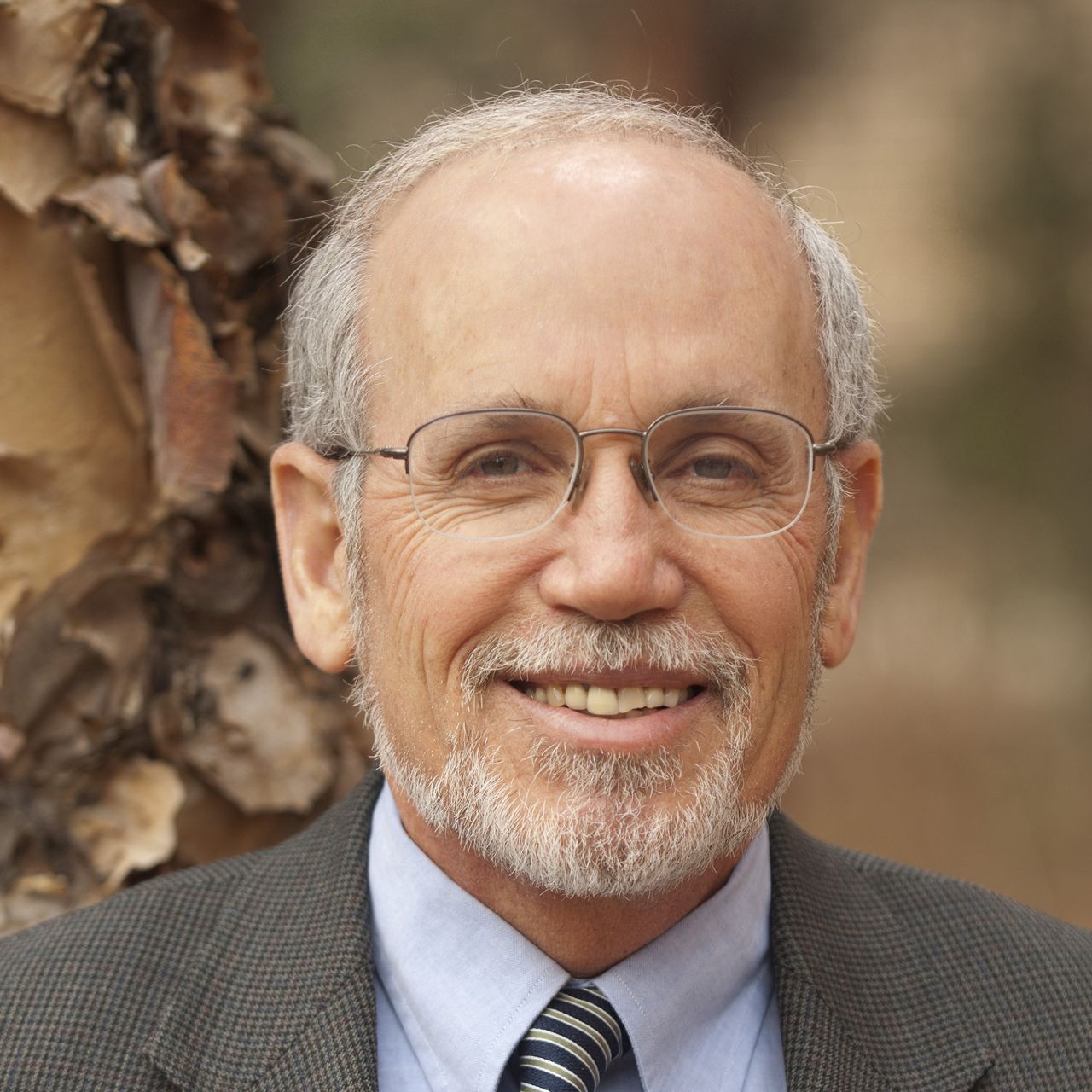

Bob Bendick

Bob Bendick is the director of the Gulf of Mexico program. Prior to this, Bob was the director of U.S. Government Relations. In this role, he supervised TNC’s relationships with Congress and the Obama Administration over a wide range of policy activities. Previously, Bob was vice-president and managing director of TNC’s ten-state Southern U.S. Region, among other roles. Bob has been with the organization since 1995.
Prior to working for TNC, Bob was deputy commissioner for natural resources of the New York State Department of Environmental Conservation (1990-1995) where he managed the natural resources functions in New York State government. During this time, he served for three years as chair of the Northern Forest Lands Council, which proposed actions to protect the future of the northern forests of New York and New England.
Bob Bendick
Gulf of Mexico Program Director, The Nature Conservancy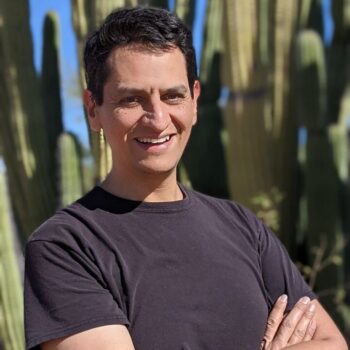

Juan Carlos Bravo

As Conservation Programs Director for the international conservation organization Wildlands Network, Juan Carlos coordinates work in four different regions of North America, advancing ecosystem connectivity across multiple landscapes, jurisdictions and cultures. He works closely with Wildlands Network’s Executive Director creating systems for effective internal collaboration between staff with different jobs, backgrounds and experiences, as a means for creating a culture connectivity and diversity that ensures the organizations puts into internal practice the values we advocate for externally.
Born in Mexico City, Juan Carlos moved in 2005 to the northwestern state of Sonora where he played a central role in establishing and expanding the Northern Jaguar Reserve, a private sanctuary for the northernmost population of the species, which he managed for nine years. Throughout his career he was part of the team tasked with reintroducing Mexican wolves into Mexico, supported prairie dog and grasslands conservation, successfully campaigned for securing the legal certainty of the Natural Protected Area Bavispe, prevented the destruction of the best-preserved stretch of the Cocóspera river by negotiating the redirection of a highway, and had an instrumental role in the passing of novel environmental legislation in Sonora.
He is a strong advocate of international and multi-stakeholder collaboration and a cartography enthusiast who enjoys looking at complex problems that call for solutions built from diverse skills and multiple approaches. Juan Carlos is a 2021 recipient of Wilburforce’s Conservation Leadership Award.
Juan Carlos Bravo
Conservation Programs Director, Wildlands Network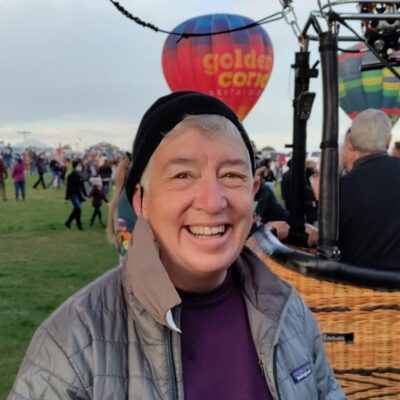

Allison Brody

Allison came to the CCC from Explora Science Center & Children’s Museum of Albuquerque, where she led a staff committed to developing and delivering innovative science education programs, as well as a workforce development center. She has been a passionate informal science educator for more than 24 years, and has worked at the Public Lands Institute, Clark County Wetlands Park, Oklahoma City Zoo, and the Bronx Zoo/Wildlife Conservation Society. She holds a B.S. in Biology, an M.S. in Ecology, and a D.A. in Biological Education. Allison believes that empowered and engaged communities are the key to conserving nature and protecting the places we live and love.
Allison Brody
Associate Director of Learning, Center for Collaborative Conservation

Dawn Carr

As Director of Strategic Conservation at the Nature Conservancy of Canada (NCC), Dawn is accelerating conservation impact by integrating and expanding private land conservation partnerships and expertise into Canadian and international biodiversity and climate dialogues. Before joining NCC, Dawn was the Executive Director for the Canadian Parks Council (CPC), advising senior government executives in Canada’s national, provincial, and territorial parks and protected area communities. With over 20 years of experience, Dawn’s passion extends into volunteer roles with the International Union for the Conservation of Nature (IUCN). Dawn holds graduate degrees from Queen’s University and the University of Waterloo, focused on environmental policy and community development. Most recently, Dawn was recognized by the CPC with an Individual Award of Excellence for her exemplary contribution to Canada’s parks community during her Executive Director tenure from 2012-2021.
Dawn Carr
Director of Strategic Conservation, Nature Conservancy of Canada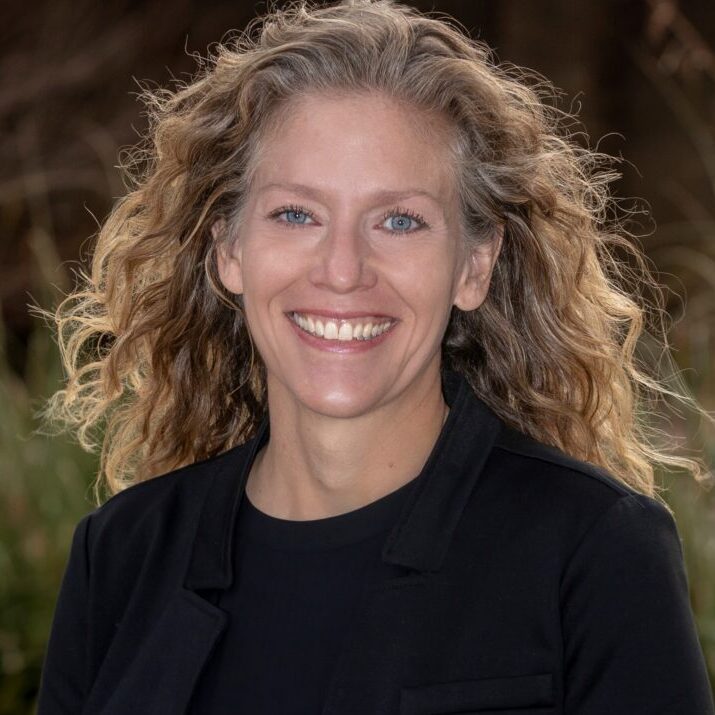

Joni Carswell

Joni Carswell is the CEO and President of Texan by Nature where she is responsible for leading the mission to bring business and conservation together. Prior to Texan by Nature, Joni was the President and CEO of LivingTree where she grew the company from 1000 to 73 million interactions and 1M+ users. Before LivingTree, Joni held leadership roles in planning and strategy at Polycom and Dell where she managed three-year planning and strategy. Joni is a graduate of the Kellogg School of Management (Masters, Business Administration) and Northwestern McCormick School of Engineering (Masters, Engineering Management), is a member of Beta Gamma Sigma and served on the Advisory Board for the Kellogg Women’s Business Association. Joni holds a B.S. in Industrial Engineering from Texas A&M University and currently serves on the External Advisory Board for the Texas A&M Department of Rangeland, Wildlife, and Fisheries Management.
Joni Carswell
CEO and President, Texan by Nature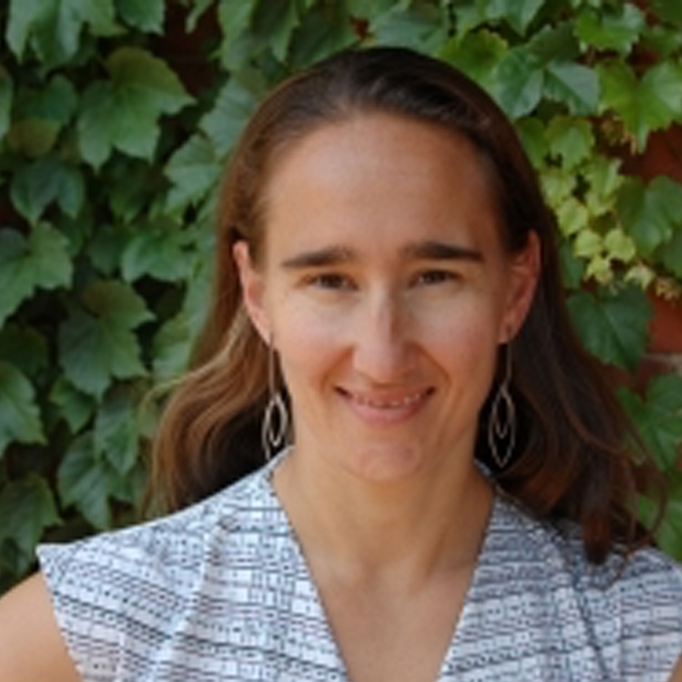

Ela Chapin

Ela Chapin is a Vermont State Representative and independent consultant, based in Central Vermont. Her professional background includes a decade working in outdoor education and leadership development, and 15 years supporting entrepreneurs and expanding local and regional food systems as Director of the Vermont Housing & Conservation Board’s Vermont Farm & Forest Viability Program from 2006-2021. Ela is founder of the National Farm Viability Conference, and co-founder of the Agricultural Viability Alliance. She holds a master’s degree in policy and planning from Tufts University, a bachelor’s in environmental science from Brown University, and a certificate in Nonprofit Management from Marlboro College. In the Statehouse, Ela serves on the House Committee on Environment, and co-chairs Vermont’s Legislative Women’s Caucus. She is a current member of the Northern Forest Center’s review committee for workforce housing projects, and has served on a variety of other boards, including Community Capital of Vermont, the Agricultural Viability Alliance, the Vermont Working Lands Enterprise Initiative, Vermont Farm to Plate, and the Vermont Compost Association. She is an avid dancer, gardener and hiker, and enjoys spending time with her husband and two children in the mountains and lakes of Vermont.
Ela Chapin
Vermont State Representative

Irasema Coronado

Irasema Coronado is the director and professor of the School of Transborder Studies at Arizona State University. She received her bachelor’s degree in political science and a certificate of Latin American Studies from the University of South Florida. She has an M.A. in Latin American Studies and a Ph.D. in Political Science from the University of Arizona. Her area of specialization is comparative politics, her research focuses on human rights on the U.S.-Mexico Border. She served as executive director of the Commission for Environmental Cooperation of North America from 2012-2015
Irasema Coronado
Director and Professor, Arizona State University School of Transborder Studies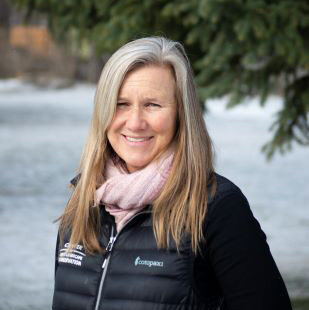

Deb Davidson

Deb Davidson is the Chief Strategy Officer at the Center for Large Landscape Conservation. She directs partnerships and network development, fundraising, program management, and strategic planning for the Center and its domestic and global conservation programs. In addition to overseeing program and organizational development, Deb ensures the implementation of regranting and program delivery for the Center’s fiscally sponsored projects (Network for Landscape Conservation and US Biosphere Networks). She also provides leadership on human resources, program administration, board development, communications, and organizational governance.
Deb has worked in conservation philanthropy, landscape conservation, and habitat protection programs for over 20 years. She has largely focused on working with a wide diversity of partners and communities to protect wildlife corridors and large landscapes, specifically focusing on network development, connectivity policy, and science in North America. Before joining the Center, Deb was a grantmaker for the Wilburforce Foundation and a program staffer for American Wildlands, the Ecology Center, and Montana Outdoor Science School. She has served on numerous boards, including as the Bozeman Community Food Co-op president and as an advisor to the Gallatin Valley Land Trust.
Deb Davidson
Chief Strategy Officer, Center for Large Landscape Conservation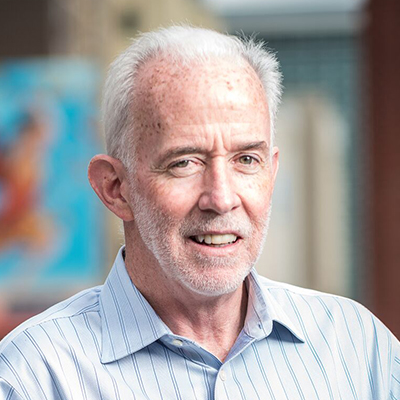

Tom Gougeon

Tom Gougeon has served as the President of the Gates Family Foundation since August of 2010. Prior to Gates, Tom was a Principal and the Chief Development Officer for Continuum Partners (2000-2010), a developer and operator of mixed use urban real estate projects. Tom also served as the Executive Director of the W.M.B. Berger Foundation (1997-2000), the CEO of the Stapleton Redevelopment Foundation (1991-1996) and as Assistant to the Mayor of the City and County of Denver (1983-1991). Tom has served on the boards of numerous community organizations including The Nature Conservancy, Denver Civic Ventures, the Urban Land Conservancy, Volunteers for Outdoor Colorado, the Piton Foundation, Neighborhood Housing Services, the Stapleton Foundation, Preservation Action, A+ Denver, the Denver Urban Renewal Authority and the Denver Water Board. Tom has a BA in Economics and Political Science from the University of Denver and a MCRP from Harvard University’s Graduate School of Design.
Tom Gougeon
President, Gates Family Foundation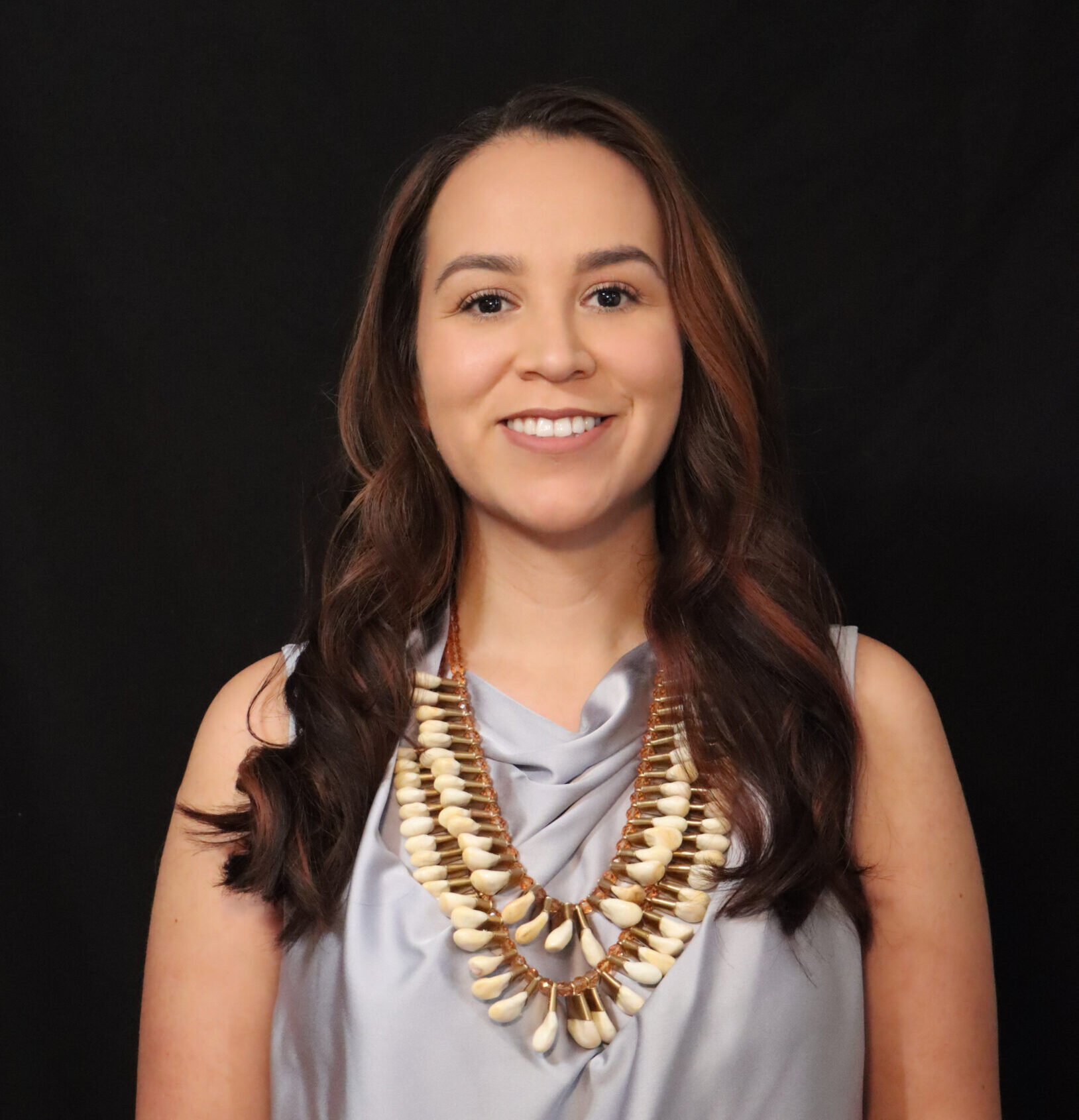

Jessa Rae Growing Thunder

Jessa Rae Growing Thunder comes from the Fort Peck Assiniboine (Nakoda)/Sioux (Dakota) tribes. She is a third-generation beadwork and quillwork artist, educator, and historian. Jessa Rae is the Director of Tribal Nation Initiatives at Native Americans in Philanthropy (NAP). She has a background in community-based methodologies, networking, facilitation, advocacy, and project development and management. Her current portfolio consists of working with Tribal communities on efforts of climate, conservation, and Tribal philanthropy.
Before joining NAP, she was the Indigenous Exchange Advisor at the Inter-American Foundation, where she led the development of a congressionally mandated initiative that fostered sustainable relationships between Native American communities and Indigenous communities in Latin America and the Caribbean.
Jessa Rae holds an M.A. and Ph.D. in Native American Studies from the University of California, Davis.
Jessa Rae Growing Thunder
Director of Tribal Nation Initiatives, Native Americans in Philanthropy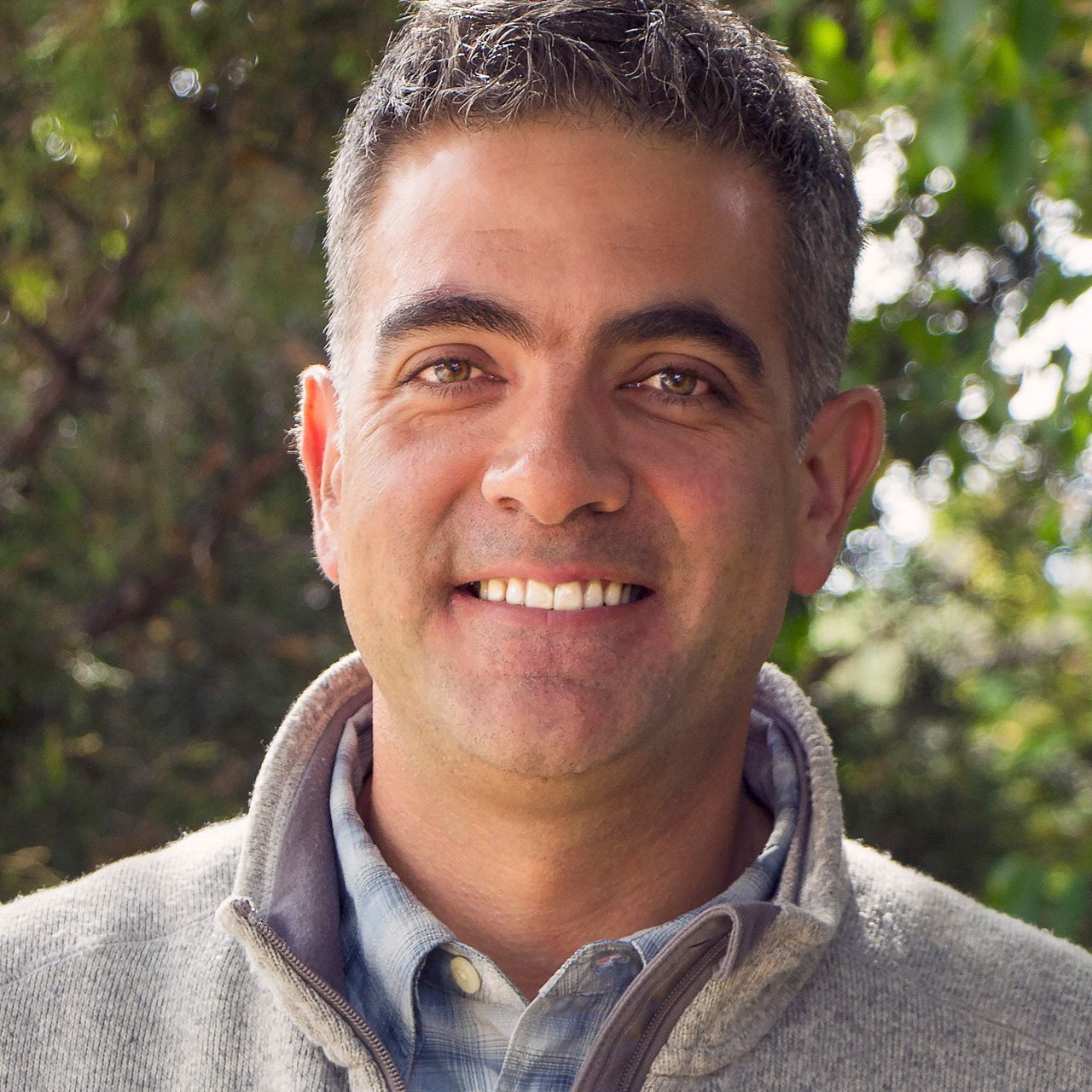

Carlos Fernandez

Carlos leads a staff of 60 Colorado employees. Working with partner organizations, government agencies, elected officials and other key decision-makers, Carlos and his team strive to build alliances that advance conservation outcomes both in Colorado and around the world. Carlos previously served the Conservancy as the Southern Andes Conservation Strategies Manager and the Patagonia Program Manager.
He joined the Conservancy in January 2003, working as the Foreign Legal Advisor for the South American Conservation Region. Earlier in his career, Carlos worked for large international law firms in both Washington, DC and Buenos Aires. He holds an LL.M. from Georgetown University Law Center and a J.D. from the University of Mendoza, School of Law from Mendoza, Argentina.
Carlos Fernandez
Colorado State Director, The Nature Conservancy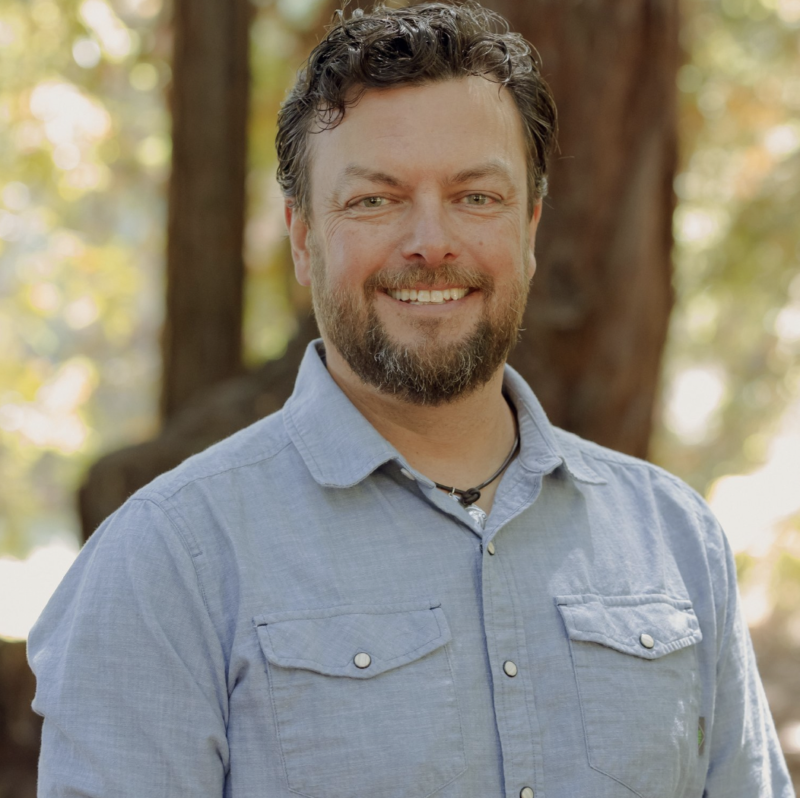

Nathan Fey

Nathan joined the Mighty Arrow Family Foundation after serving the State of Colorado as the Director of the Outdoor Recreation Industry Division within the Governor’s Office of Economic Development and International Trade. In this role, Nathan oversaw the cultivation of Colorado’s $62.5 Billion Outdoor Recreation Economy and partnered directly with the Governor’s office to create policies that promote business recovery and growth, the conservation and stewardship of Colorado’s public lands and waters, advance the state’s education and workforce development programs, and improve public health and wellness through outdoor participation.
Prior to working at the State, Nathan was active in the non-profit conservation community and has spent over 20 years working with federal and state agencies, national and statewide non-profits, and local community groups across the Southern Rockies and intermountain west.
Nathan Fey
Land & Water Program Director, Mighty Arrow Family Foundation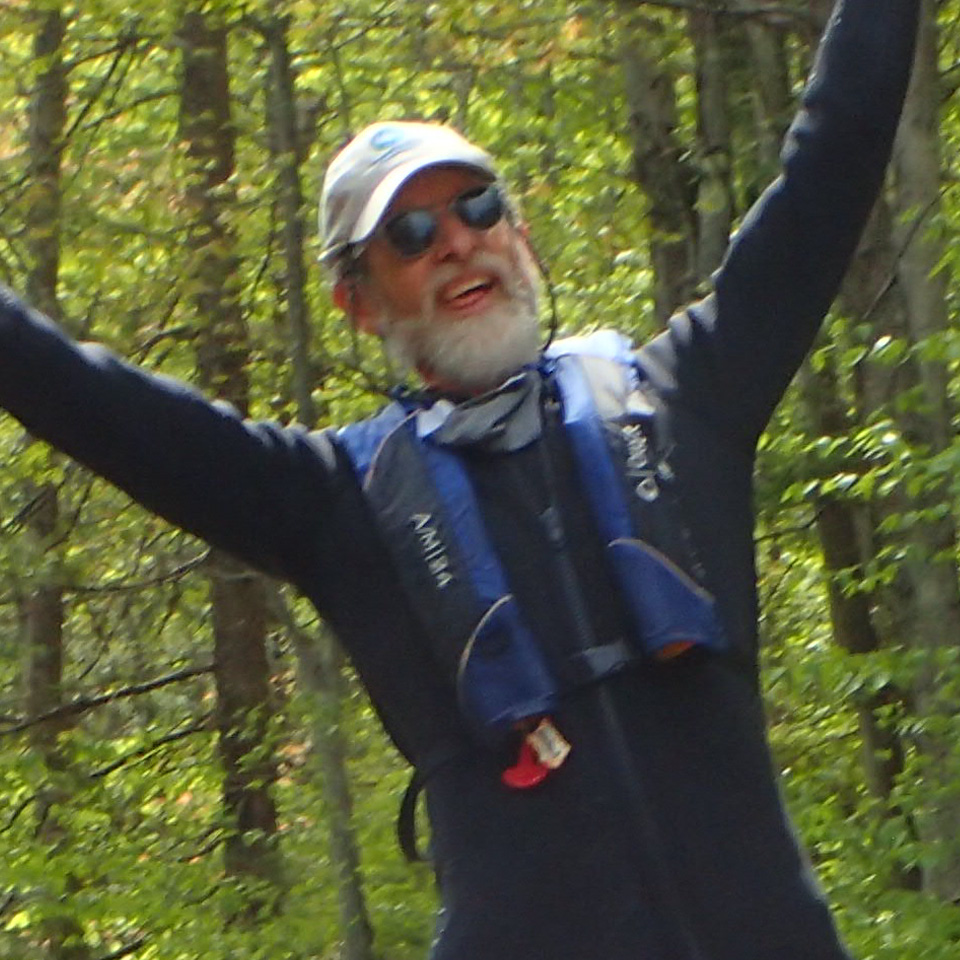

Andrew Fisk

Andy has worked in conservation across New England for over 25 years in roles across Maine and Connecticut state government in regional planning, marine resource policy, forestry, fisheries, wildlife management and environmental protection. He served as Executive Director of the Connecticut River Conservancy for 11 years, tripling the size of the organization in size and impact. He is energized by working with local communities to find environmental problems and fix them so that everyone can be sustained by the benefits of nature. He has a Ph.D. in Environmental Sciences as well as a Masters in City and Regional Planning from Rutgers University.
Andrew Fisk
Northeast Regional Director, American Rivers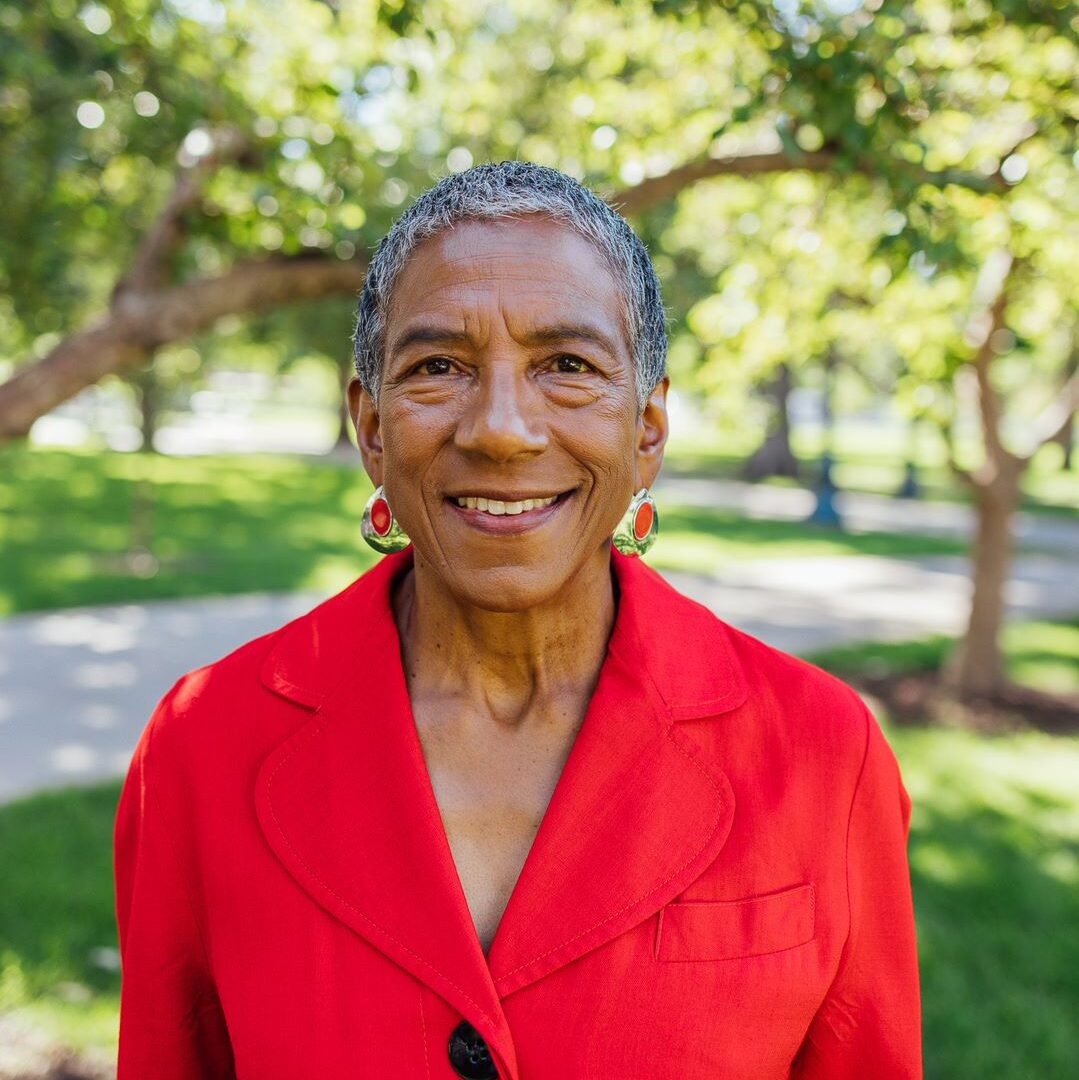

Allegra “Happy” Haynes

Allegra “Happy” Haynes is overseeing 250 urban parks, 29 recreation centers, 31 pools and 14,000 acres of mountain parks. Her vision is to help build a healthier city, create more park land and opportunities for all ages to play and exercise, increase sustainable practices, grow urban forests and connect diverse communities to nature. Happy is a Denver native. She received a BA degree in Political Science from Barnard College at Columbia University and an MPA from the University of Colorado at Denver. During a career in local government spanning 36 years, Happy served 13 years on the Denver City Council from 1990 – 2003, including two years as President, and has served under three different mayors. She also served as an elected member of the Denver Public Schools Board of Education for 8 years. She currently serves on the national boards of the City Parks Alliance and the Trust for Public Land along with local boards including the Colorado Trust for Public Land, Denver Museum of Nature and Science, Denver Zoo, Denver Botanic Gardens, Salazar Center for North American Conservation, Civic Center Conservancy, Denver Park Trust, and The Park People.
Allegra “Happy” Haynes
Executive Director, Denver Parks and Recreation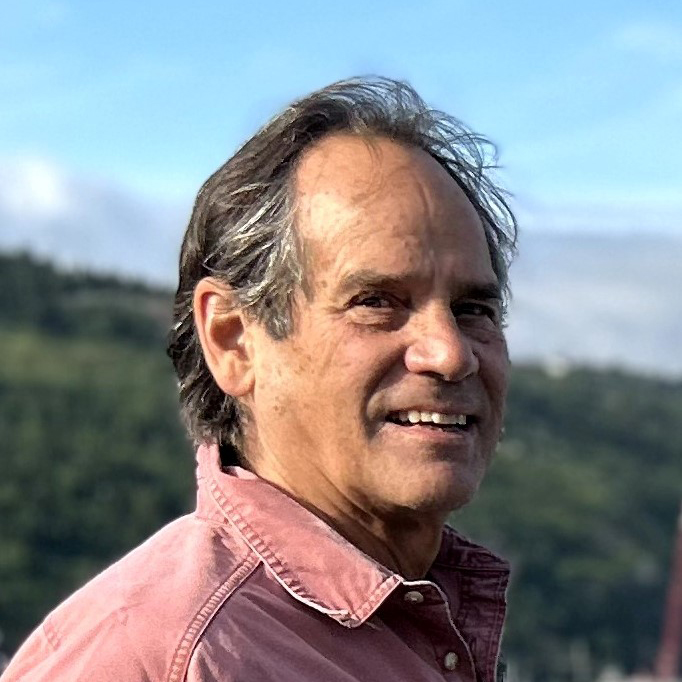

Brian Houseal

Brian is the Chair Emeritus of the US Biosphere Network, representing 28 internationally recognized Biosphere Regions with the goal of conserving biological diversity while also supporting sustainable human communities in harmony with nature. Brian lives in Brunswick, Maine.
Brian has extensive conservation experience throughout the Western Hemisphere where a variety of organizations supported his work, including: US Peace Corps, US Agency for International Development, World Bank and World Wildlife Fund. Brian was a Vice President for the Nature Conservancy’s International Program for 15 years, where one of his major achievements was to design and direct the “Parks in Peril Program,” which protected over 60 million acres of critically threatened parks and reserves throughout Latin America.
Houseal holds a BA degree from Colgate University and graduate degrees in Landscape Architecture and Regional Planning from Syracuse University and the College of Environmental Science and Forestry, State University of New York.
Brian Houseal
Chair Emeritus, U.S. Biosphere Network, National Park Service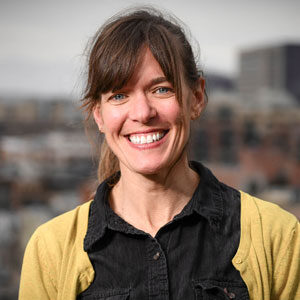

Whitney Johnson

Whitney joined the Gates Family Foundation in January of 2019 and leads the Foundation’s natural resources program. Whitney has spent two decades in the nonprofit sector. Most recently, she served as a Program Officer for the Anschutz Family Foundation, working on community development and economic self-sufficiency in both urban and rural Colorado. Previously, she was a development officer at the Museum of Contemporary Art Denver, where she translated big vision into organizational growth and was instrumental in securing the largest grant in the organization’s history. As a program officer at Earth Expeditions, Whitney deepened engagement and understanding of local conservation issues between students, educators, and global citizens by facilitating local community groups in conservation hot spots around the globe. Whitney holds a B.A. in International Studies and her Master’s degree in Environmental Sciences with a focus on community based conservation, both from Miami University of Ohio.
Whitney Johnson
Senior Program Officer- Natural Resources, Gates Family Foundation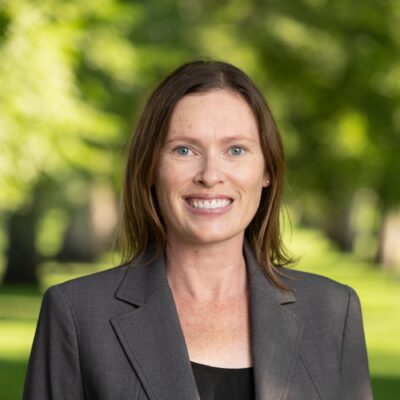

Julie Kallenberger

Julie Kallenberger is the owner of Camp5 LLC which provides project and program support for water education and engagement activities. Some of her most fulfilling work includes developing and managing educational content for the exhibits planned at the CSU Spur Hydro building.
Julie has over 20 years of experience in the government and private sectors. Most recently, she served as the associate director of the Colorado Water Center at Colorado State University where she managed various research, education, and outreach programs. She is an affiliate of Colorado State University, serves as program chair for Water Education Colorado’s board of trustees, is a board member for the Poudre Heritage Alliance, and is an advisory council member for the One World One Water Center at Metropolitan State University.
Julie earned her B.S. in Environmental Management from South Dakota State University in 2001 and her M.S. in Human Dimensions of Natural Resources from Colorado State University in 2013.
Julie Kallenberger
Owner, Camp5 LLC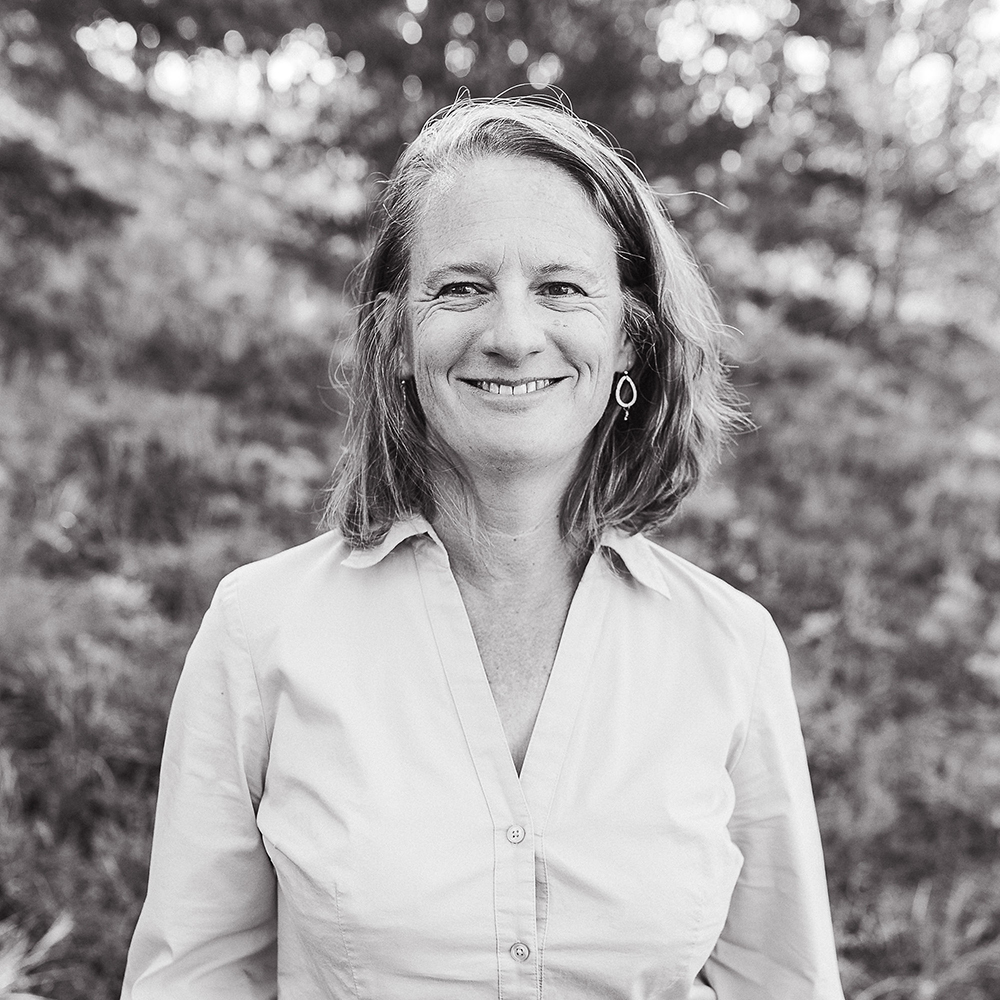

Deb Kleinman

Deb launched her facilitation, consulting, and coaching practice in 2012 to support innovative organizations and collaborative partnerships that are working together to solve complex problems and have a positive impact on the world. She provides a range of services in support of her clients: internal organizational development and capacity building, leadership coaching, customized training, facilitation of internal and collaborative multi-stakeholder processes, conflict management support, and program management. In addition to her consulting work, she directs the Collaboration Program in Natural Resources, a professional leadership program based out of the University of Wyoming. Deb has over 25 years of experience working in and with nonprofit organizations, academic institutions, public agencies, and private businesses. Her work has taken her through a wide range of issues, fields of study, and areas of interest, including: public health, natural resources and the environment, green building and sustainable development, and leadership development. She has a BA in environmental history from Carleton College, a Masters in Public Health from the University of Michigan, graduate coursework in environmental policy and natural resources from the UM, and is an accredited professional coach through the International Coach Federation. Deb also currently serves on the Board of Directors and as a leadership coach with the Regional Institute for Health and Environmental Leaders. She lives in Laramie, Wyoming with her husband and our two dogs and works locally, regionally, and nationally from her home base near the Snowy Range Mountains.
Deb Kleinman
Director, Collaboration Program in Natural Resources (CPNR), University of Wyoming

Robin Lawson

Robin Lawson is the Business Development Manager at the Centre for Land Conservation. Based in in Tiohti:áke (Montreal), Canada. A graduate of Acadia University, she is a passionate conservation professional and proponent for intergenerational and cross sectoral collaboration. Robin spent her early career working in various capacities with the Nature Conservancy of Canada. She volunteers as the President of the Canadian Committee for IUCN and as Vice-Chair at the Lawson Foundation.
Robin Lawson
Manager of Business Development, Centre for Land Conservation

Jim Levitt

Jim Levitt is a co-founder and the director of the ILCN, based at the Lincoln Institute in Cambridge, Massachusetts, USA. In addition, he holds ongoing fellowships at the Harvard Forest, Harvard University and at Highstead, a non-profit advancing land conservation in New England.
Levitt focuses on landmark innovations in the field of land and biodiversity conservation, both present-day and historic, that are characterized by five traits: novelty and creativity in conception, strategic significance, measurable effectiveness, international transferability, and the ability to endure. Levitt has written and edited dozens of articles and four books on land and biodiversity conservation. Among his current efforts, Levitt is advising colleagues in Chile on the expansion of private land conservation initiatives and enabling legal frameworks in that nation. He is also engaged in an effort to link land conservation innovators at universities, colleges and independent research institutions around the globe. Levitt is a graduate of Yale College and the Yale School of Management (Yale SOM).
Jim Levitt
Director of the International Land Conservation Network, Lincoln Institute of Land Policy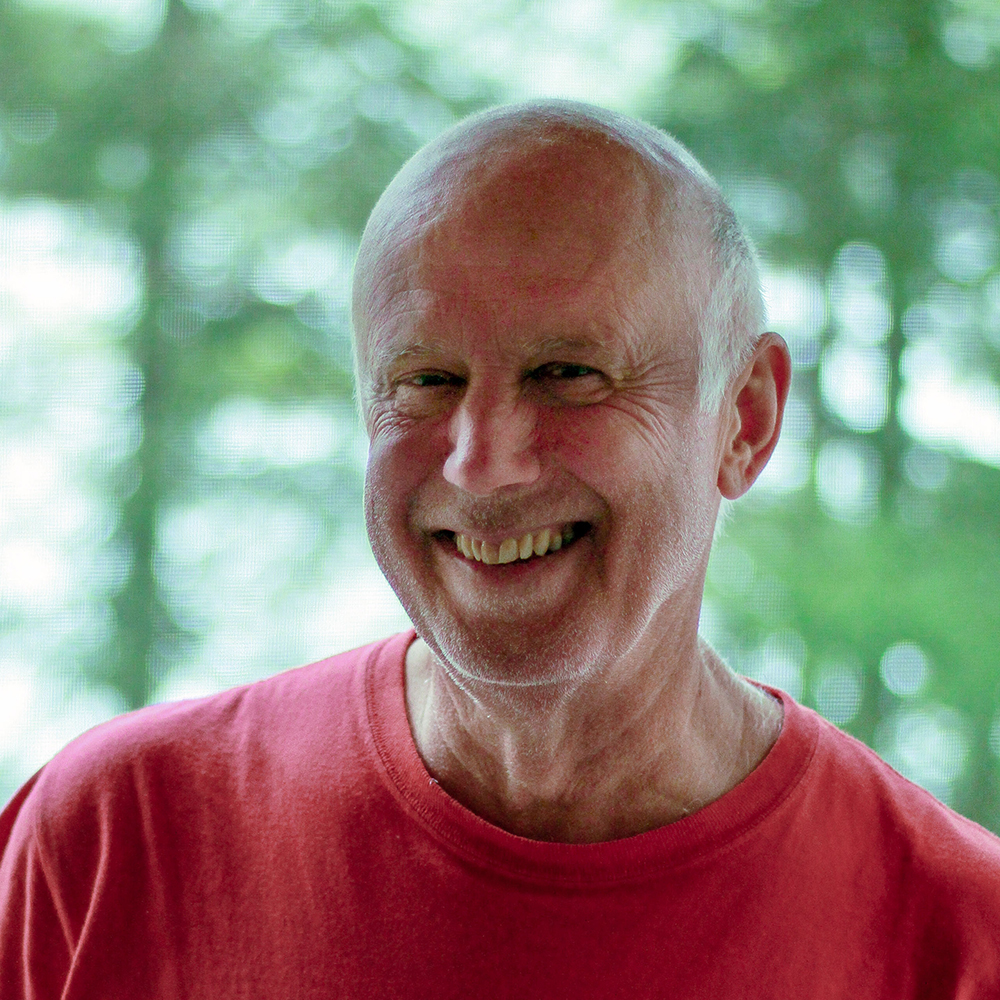

John Lounds

John recently retired as President and CEO of the Nature Conservancy of Canada (NCC). In more than two decades of leadership John oversaw remarkable growth in NCC’s programs, conservation projects, funding and impact, leading to the conservation of more than 14 million hectares.
Previously, John was Executive Director of the Federation of Ontario Naturalists (now Ontario Nature) and worked for several years in senior positions with the Government of Ontario. John is passionate about Canada – “what better country is there to live a life, work hard, love the land, and enjoy the great outdoors?”
John is an advocate for growing the community-based private land conservation movement and creating solutions that will change our trajectory to a nature positive future for generations to come.
John Lounds
Former President and CEO of the Nature Conservancy of Canada (NCC)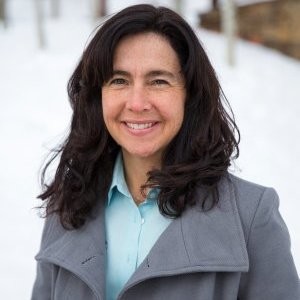

Deb Love

Deborah Love is responsible for providing coordination, research, strategic direction, and leadership for conservation programs. Before RLF, she was executive director of the LOR Foundation and, prior to that, was senior vice president at the Trust for Public Land. She holds a BS in organizational management from the Haas School of Business at UC Berkeley and an MS in environmental resource management from Antioch New England Graduate School.
Deb Love
Intermountain West Director, Resources Legacy Fund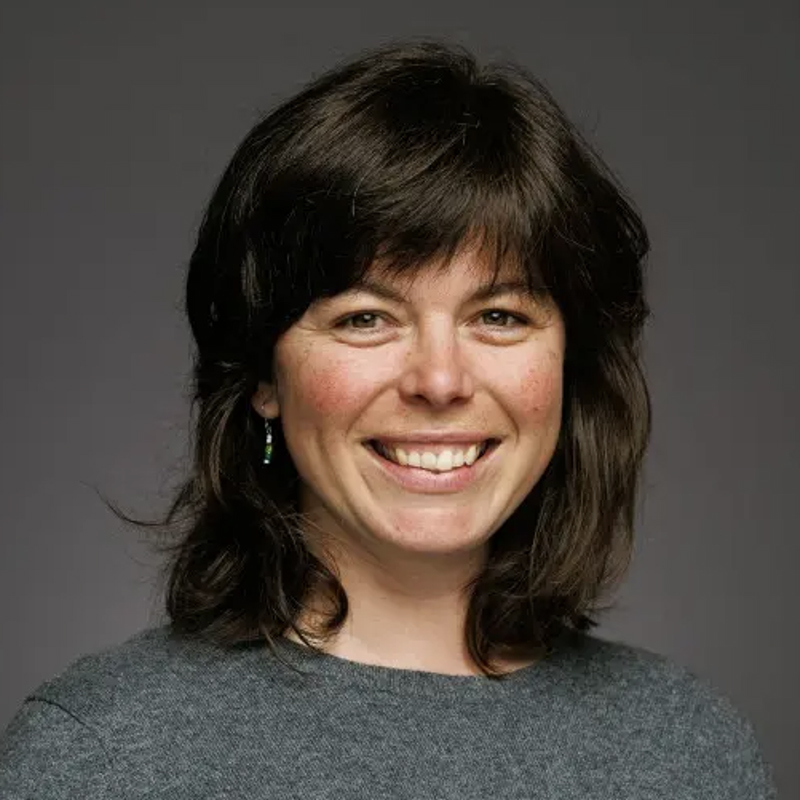

Katie Michels

Katie is the Director of Partnerships at the Conservation Finance Network, where she supports conservation finance training and information sharing within CFN’s network. She has worked at the Vermont Housing & Conservation Board and a Vermont-based foundation, and for land trusts in Vermont, Maine, Massachusetts, and Montana. Katie has a Masters of Environmental Science and an MBA from Yale University, and a B.A. in Geography and Environmental Studies from Middlebury College.
Katie Michels
Director of Partnerships, Conservation Finance Network

Teresa Martinez

For over 30 years, Teresa has worked professionally to increase awareness, engagement, access, and stewardship of our entire National Trails System. A graduate of Virginia Tech, Teresa holds a B.S. and M.S from the Department of Fisheries and Wildlife in the College of Natural Resources. Teresa is a lifelong outdoor recreationist and from 1987-2007 she worked for the Appalachian Trail Conservancy, from 2007 to 2012 she worked for the Continental Divide Trail Alliance and since 2012 she has been the Executive Director (and co-founder) of the Continental Divide Trail Coalition. She serves on the Trail Leadership Council of the Partnership for the National Trails System and has served as the Chair of the Federal Advisory Committee to aid the USFS in the development of the Pacific Northwest National Scenic Trail. Teresa is actively involved in the creation of equitable spaces for all people in the outdoors and currently serves as the acting chair of the Board for the Next100 Coalition. In 2019,Teresa was honored by the Virginia Tech College of Natural Resources as the recipient of the Gerald Cross Alumni Leadership Award. When not working on behalf of one of our National Trails, Teresa may be found exploring trails in and around Santa Fe, NM by bike, horse, and foot.
Teresa Martinez
Executive Director, Continental Divide Trail Coalition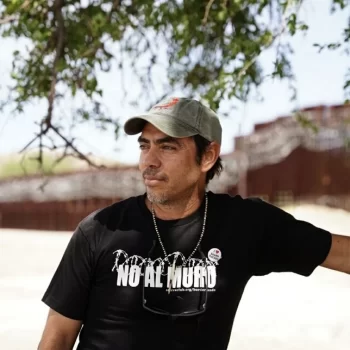

Erick Meza

Erick is the current Borderlands Coordinator for the Sierra Club Grand Canyon Chapter and Permaculture educator from the Sonoran Desert. The Borderlands are very complex because there is an intersection of politics, economics, migration, race, food systems and the natural environment that makes it extra challenging. His work is to promote a holistic approach trying to understand how all these dynamics intersect and ultimately affect the front-line communities and the environment. Sierra Club Borderlands program advocates for real root cause solutions, such as comprehensive immigration reform, education, political engagement, transboundary conservation and support of border and native communities.
Erick Meza
Borderlands Coordinator, Sierra Club Grand Canyon Chapter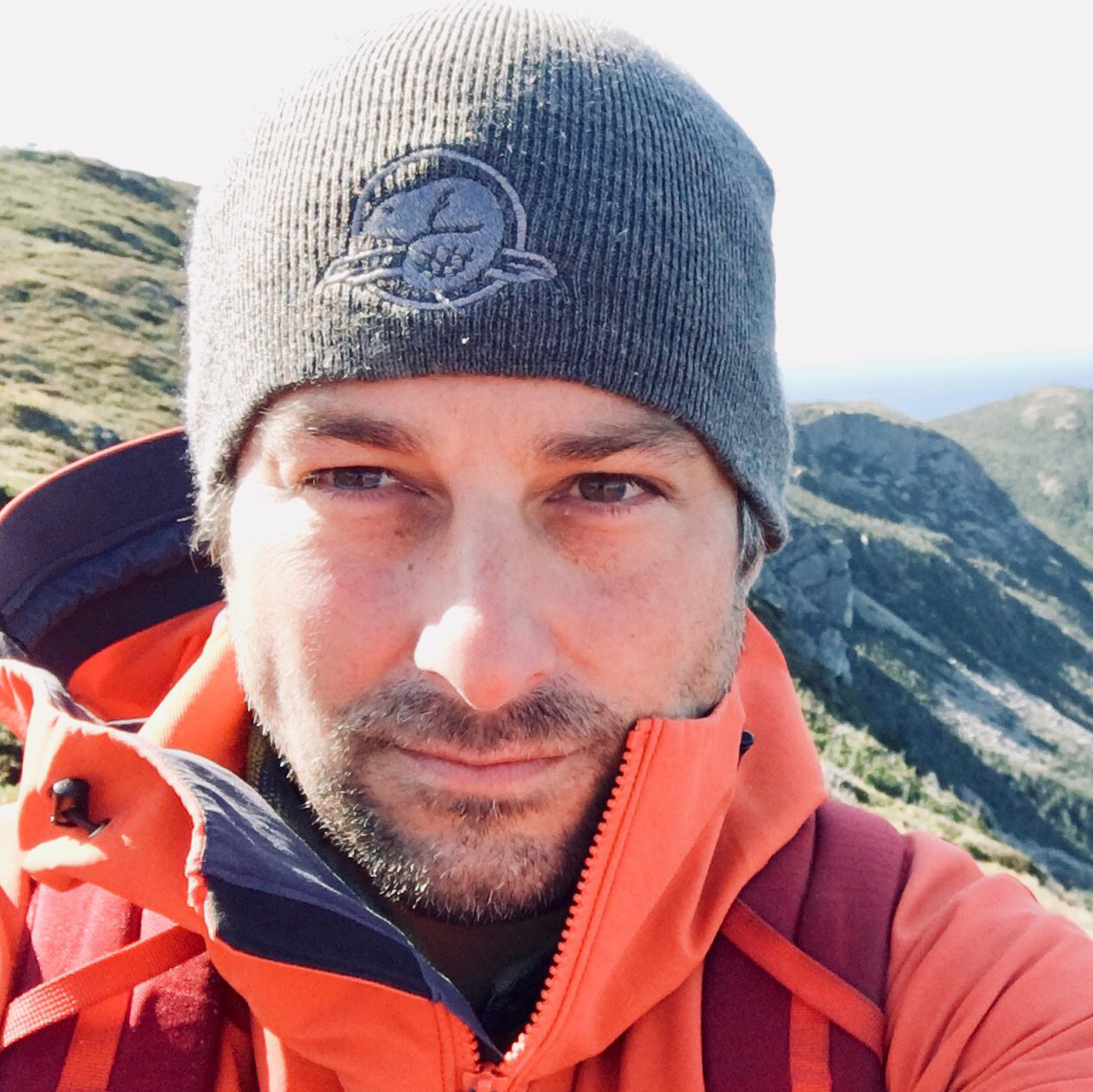

Chris Miller

Chris is the Executive Director of the Canadian Parks and Wilderness Society – Nova Scotia Chapter. He has 25 years experience running conservation campaigns leading to the establishment of new protected areas, including national parks, provincial parks, wilderness areas, and nature reserves. Chris has a Ph.D. in conservation biology and is the founder of Atlantic Canada’s only Conservation Freediving Team. He prioritizes local partnerships and spending time on the land and water for conservation campaigns.
Chris Miller
Executive Director of the Canadian Parks and Wilderness Society – Nova Scotia Chapter

Chandni Navalkha

Chandni is associate director of Sustainably Managed Land and Water Resources at the Lincoln Institute of Land Policy, where she leads programs to advance and accelerate the enduring protection of land and water resources worldwide. Chief among these is the International Land Conservation Network, which connects private and civic land conservation organizations and practitioners around the globe working to protect places important to their communities and regions. In addition to the ILCN, Chandni manages the Institute’s programs and projects on large landscape conservation and conservation innovation. Prior to joining the Lincoln Institute, Chandni worked for organizations in North America, Latin America, and South Asia supporting urban, peri-urban, and rural communities involved in voluntary land and resource conservation, and earlier in her career worked in change management for private and public sector organizations as a consultant with Accenture. She holds a Master’s in Environmental Science from the Yale School of Forestry and Environmental Studies.
Chandni Navalkha
Program Manager of Land Conservation Programs, Lincoln Institute of Land Policy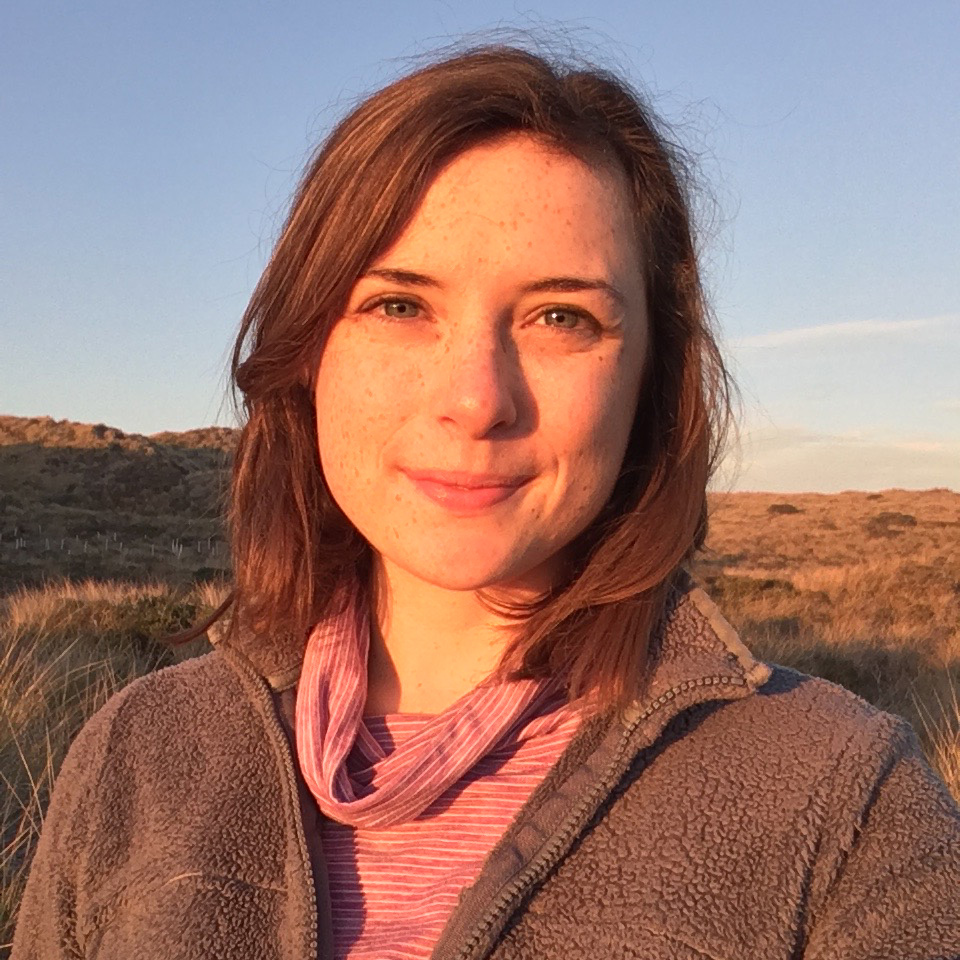

Eliza (Ellie) Oldach

As core staff of First Light, Eliza (Ellie) works with a broad network of non-native conservation organizations to build community relearning and land return in Wabanaki homelands. Eliza was born in Maryland and was first introduced to Wabanaki homelands as a student at College of the Atlantic in Bar Harbor. After college, Eliza followed her interest in understanding how coastal communities adapt to social & ecological change through a Fulbright fellowship in Aotearoa New Zealand and graduate research at University of California, Davis, before returning to live and work in Wabanaki homelands. Eliza’s professional work and personal leanings are based on the belief that community relearning is intrinsic to building more livable futures, and that together we can expand our collective sense of what’s possible in colonized/decolonizing places.
Eliza (Ellie) Oldach
Core Staff Member on Relearning, First Light

Jill Ozarski

Jill Ozarski joined the Walton Family Foundation in 2016. She works with grantee partners across the seven-state Colorado River region to conserve water, restore watersheds, and leverage conservation funding. Prior to joining the Foundation, she served as the Senior Natural Resources Policy Advisor to U.S. Senator Mark Udall and held other leadership and policy positions with NGOs. She is a 2015 Fulbright-Ian Axford Fellow in Public Policy where she worked in New Zealand to advance public-private partnerships. She is a graduate of Southampton College (B.S.) and Duke University, where she earned a Master of Public Policy and Master of Environmental Management. Jill lives in Denver, Colorado and volunteers as a member of the Colorado Recreational Trails Committee and the Colorado Conservation Easement Oversight Commission.
Jill Ozarski
Program Officer–Environment Colorado River Initiative, Walton Family Foundation

Sarah Parmar

Sarah has spent over a decade at Colorado Open Lands and leads COL’s private land conservation work. Sarah came to COL from the hot Arizona sun where she completed her M.S. in Agricultural & Resource Economics, conducting research on land and wildlife issues, especially on the law of conservation easements. Her passion for Western land protection stems from her background growing up as the sixth generation on a cattle ranch in Southeastern Arizona, where her parents and their ranching community established the Malpai Borderlands Group, a collaborative conservation organization. Sarah is past President of the Board of Directors of Re:Vision, a Denver-based food systems nonprofit, and is current Chair of the Colorado Conservation Easement Oversight Commission.
Sarah Parmar
Director of Conservation, Colorado Open Lands

Jonathan Peterson

Jon has been with the Network for Landscape Conservation since 2016 and has filled various roles, including managing the Catalyst Fund through its five (and counting) years of grantmaking and peer learning. He brings nearly 20 years of experience in working to advance collaborative landscape conservation and stewardship. Before joining the Network, he coordinated the South Mountain Partnership, a regional landscape conservation initiative in south-central Pennsylvania. He spent three years on the staff of the Boston-based Kendall Foundation. He is also a senior fellow of the Environmental Leadership Program. A graduate of Middlebury College and the Yale School of Forestry and Environmental Studies, Jon lives in western Massachusetts with his wife and their two little ones. Too much of his work is done in front of a computer, and he embraces any opportunity to get away from a screen—especially if the escape is on two wheels or skis when the snow is good.
Jonathan Peterson
Director, Network for Landscape Conservation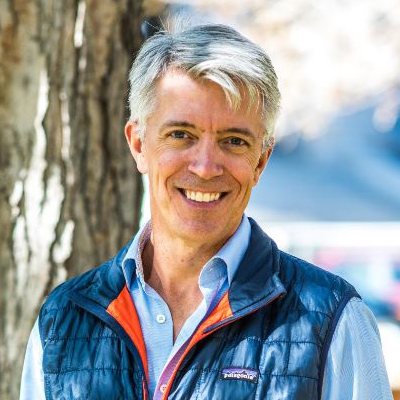

Jim Petterson

Jim is Trust for Public Land’s Mountain West Region vice president, overseeing the organization’s Northern Rockies (MT, ID, WY) and Texas Programs, and providing day-to-day management of its Colorado & Southwest Program (CO, UT, AZ, NM). Together, these teams are working with local communities in some of the fastest-growing urban, suburban and rural areas to generate climate, health and equity outcomes by creating parks, conserving priority lands, reimagining schoolyards and building and enhancing trails and greenways.
Prior to joining Trust for Public Land, Jim spent 17 years at The Nature Conservancy, including 12 years in a variety of senior marketing leadership roles, such as chief communications officer and communications director; and five years as senior advisor to the CEO. Prior to joining the Conservancy, Jim spent 10 years working in Washington, D.C. as a communications director and legislative assistant for a senior member of Congress and as a press secretary for the U.S. Secretary of Agriculture. Jim is an avid trail runner, bushwhacker and peak bagger. When he’s not visiting his kids at their colleges in the Florida Keys and Berkeley, California, Jim lives in Denver, Colorado with his spouse, Jeanine.
Jim Petterson
Colorado & Southwest Region Director, The Trust for Public Land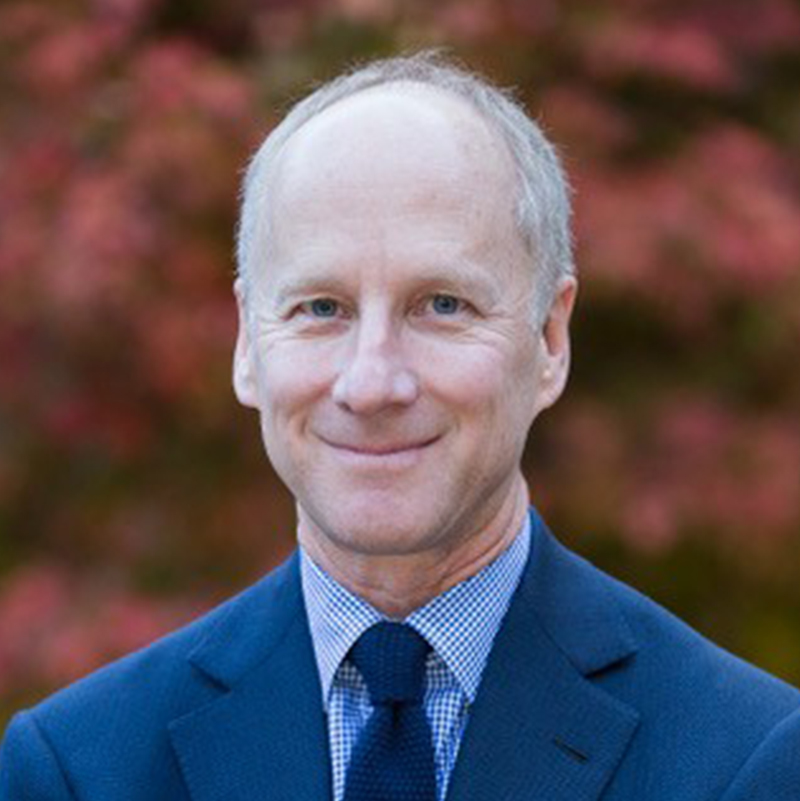

Patrick Phillips

Patrick most recently served as Global CEO of the Urban Land Institute, a non-profit organization considered a leader in developing and advocating best practices in sustainable, equitable urban development. For much of his career, Patrick helped public agencies, non-profits, and private clients craft and execute compelling, economically sound real estate and urban-development strategies. Often, this work focused on creating public-private partnerships, working with business and government to structure relationships that fairly allocate the costs and benefits of development projects. Prior to heading ULI, Patrick was a leading economic-planning consultant, heading Economics Research Associates, now part of AECOM. His work for major real estate investors and developers has involved all major categories of urban land use, with an emphasis on mixed-use development and the revitalization of downtowns and urban waterfronts. He is the author or co-author of eight books and numerous articles and has taught at Harvard’s Graduate School of Design and Johns Hopkins University.
Patrick Phillips
Former Global CEO, Urban Land Institute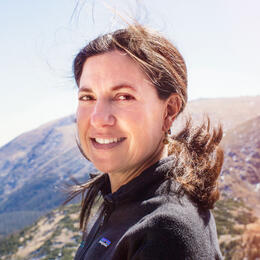

Jennifer Pitt

Jennifer Pitt leads Audubon’s strategies to protect and restore rivers throughout the Colorado River Basin. As a senior member of the team she mentors staff in a number of Audubon’s regional offices. She seeks to improve river and water management for habitats and communities excluded from consideration in the 19th century legal framework and 20th century infrastructure that shapes the Colorado River Basin today. Jennifer leads the United States–Mexico collaboration to restore the long-desiccated Colorado River Delta. She serves as the U.S. co-chair of the bi-national work group that implements treaty commitments to environmental flows and habitat creation, a program that benefits nearly 400 bird species and more than one million Mexicali Valley residents who live in a desiccated river delta.
Jennifer Pitt
Director, Colorado River Program, National Audubon Society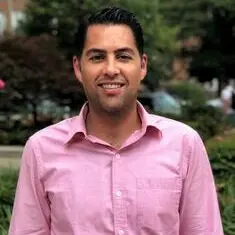

Enrique Prunes

Enrique Prunes is a Senior Program Officer for Freshwater at WWF US. In his role, he works across the Freshwater and Food team to incorporate the connections of surface water, groundwater, and agricultural water consumption to all the team initiatives and beyond. He leads new strategy development and implementation for Water in North America, specifically in the Rio Grande/Rio Bravo binational basin. Enrique serves as the primary focal point on the Freshwater team for issues and solutions related to agricultural water management, groundwater and surface water hydrology, and related science and policy areas. He works to address the drivers and threats to biodiversity and freshwater ecosystems due to changes in agriculture and water scarcity challenges globally. He also works to assess the validity and utility of water balance/accounting models that link groundwater and surface water systems and include integration and downscaling of climate change scenario planning.
Enrique Prunes
Senior Program Officer Freshwater, World Wildlife Fund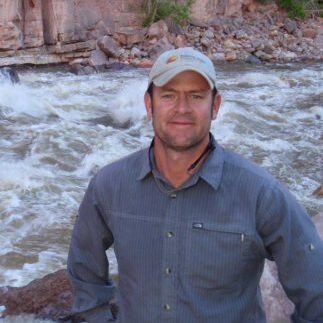

Matt Rice

Matt Rice directs American Rivers’ multidisciplinary programs in the Colorado River Basin, a region that spans seven states from Wyoming to California. His team drives innovative policy, program, and project solutions to conserve water in the urban, agricultural, and energy sectors to ensure that the rivers and streams in the region are healthy for local and regional economies, sustainable agriculture, and world-class recreation.
Previously, Matt has worked as a fly fishing guide in Montana, Colorado, Kentucky, and South Carolina. He also spent 4 years in Zambia working with rural farmers to integrate fish farming and irrigated agriculture into their farming systems.
Matt completed his masters in Environmental Policy from the University of Denver. His research was focused on global water resources. He received his undergraduate degree from Montana State University in 2000.
Matt Rice
Acting Vice President of Basin Conservation, American Rivers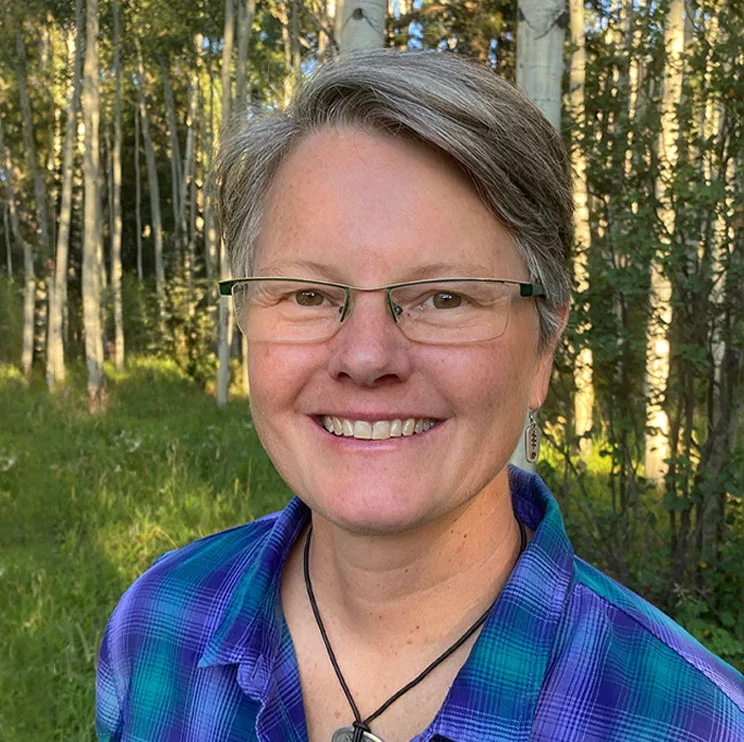

Breece Robertson

Breece has more than 20 years of experience leading collaborative and strategic initiatives that leverage geospatial technologies for land, water, equity and climate issues. Breece currently holds the position of Director of Impact Assessment and Monitoring at One Tree Planted, a global environmental restoration and reforestation organization. She authored a book, due to publish in early 2021 through Esri Press, called “Protecting the Places We Love: Conservation Strategies for Entrusted Lands and Parks”.
From 2001 – 2019, she led GIS, research and planning teams at The Trust for Public Land that supported 3,000+ places protected, 2+ million acres of land saved, over 9 million people served by parks and 74 billion dollars in voter approved funding for parks and conservation. She is a skilled leader, collaborator, implementer and creative visionary with a legacy of building award-winning teams and community-driven GIS approaches for strategic land protection.
Breece Robertson
Director of Impact Assessment and Monitoring, One Tree Planted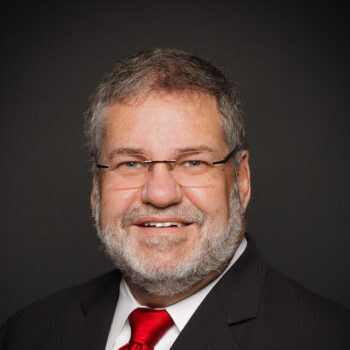

Carlos Rubinstein

Rubinstein is the Principal member of RSAH2O, LLC – an environmental consulting firm with strong emphasis on water issues. Rubinstein has served as an expert witness on various environmental cases and has published several peer-reviewed articles on Texas water policy matters.
Rubinstein, appointed by Governor Ricky Perry, served as chairman of the Texas Water Development Board (TWDB) from 2013-2015. During his tenure, he oversaw the implementation of the $2 billion State Water Infrastructure Fund for Texas (SWIFT). He also served as the Texas representative to the Western States Water Council, and the Border Governors’ Conference Sustainable Development worktable. Rubinstein served as a commissioner of the Texas Commission on Environmental Quality (TCEQ) from 2009–2013. He has also served as deputy executive director of TCEQ and as Rio Grande Watermaster.
Carlos Rubinstein
Principal Member, RSAH2O, LLC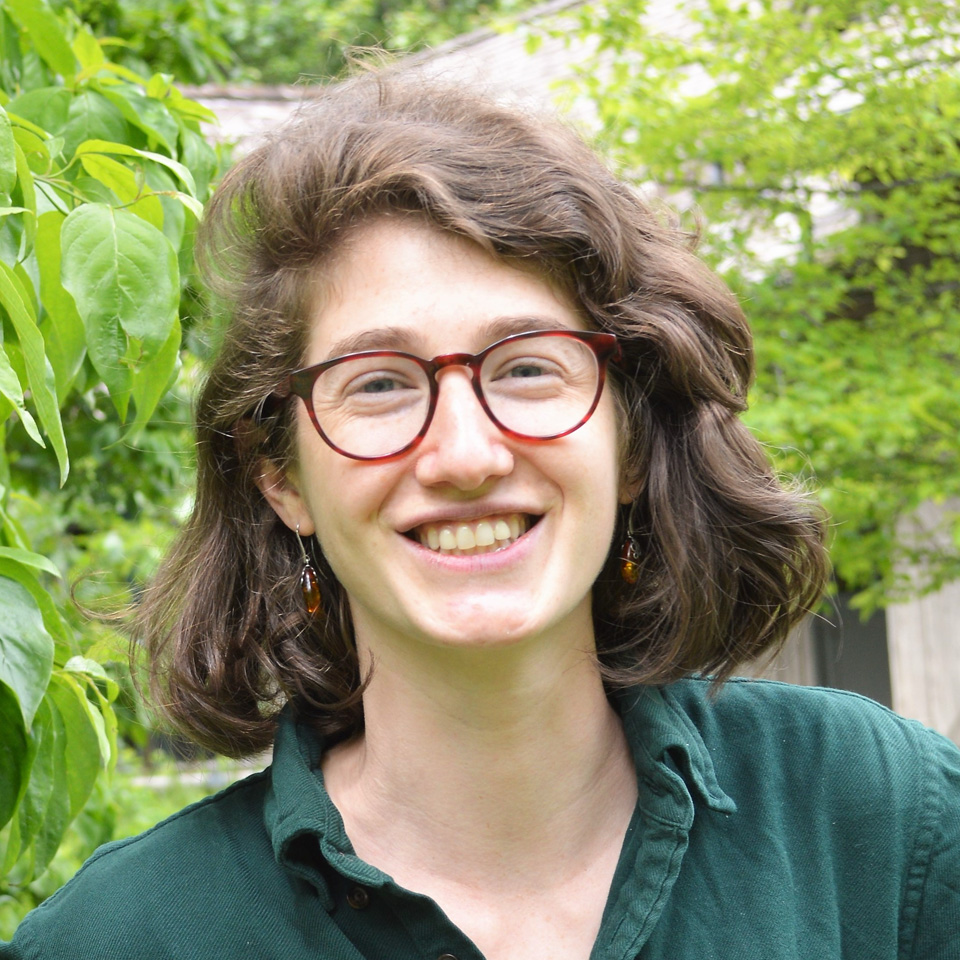

Hallie Schwab

Hallie is Conservation Planning Manager at Open Space Institute (OSI) where she works to help land conservation organizations, public agencies, and other partners apply climate and watershed science to guide strategies for land protection and stewardship. Hallie administers OSI’s Catalyst Program, which has provided grants and technical assistance to support the development of 100 climate-informed plans. Hallie’s recent work has included a focus on supporting communities in harnessing natural climate solutions to bolster resilience to flooding and other climate impacts. In a previous role at the Highstead Foundation, Hallie worked on initiatives to strengthen the capacity of landscape-scale conservation collaboratives and served as a co-coordinator of the Hudson to Housatonic Regional Conservation Partnership. She has also worked at regional land trusts in New York and Massachusetts. Hallie holds a masters in Natural Resources from the University in Vermont, and a B.A. in Environmental Studies and French from Amherst College.
Hallie Schwab
Conservation Planning Manager, Open Space Institute (OSI)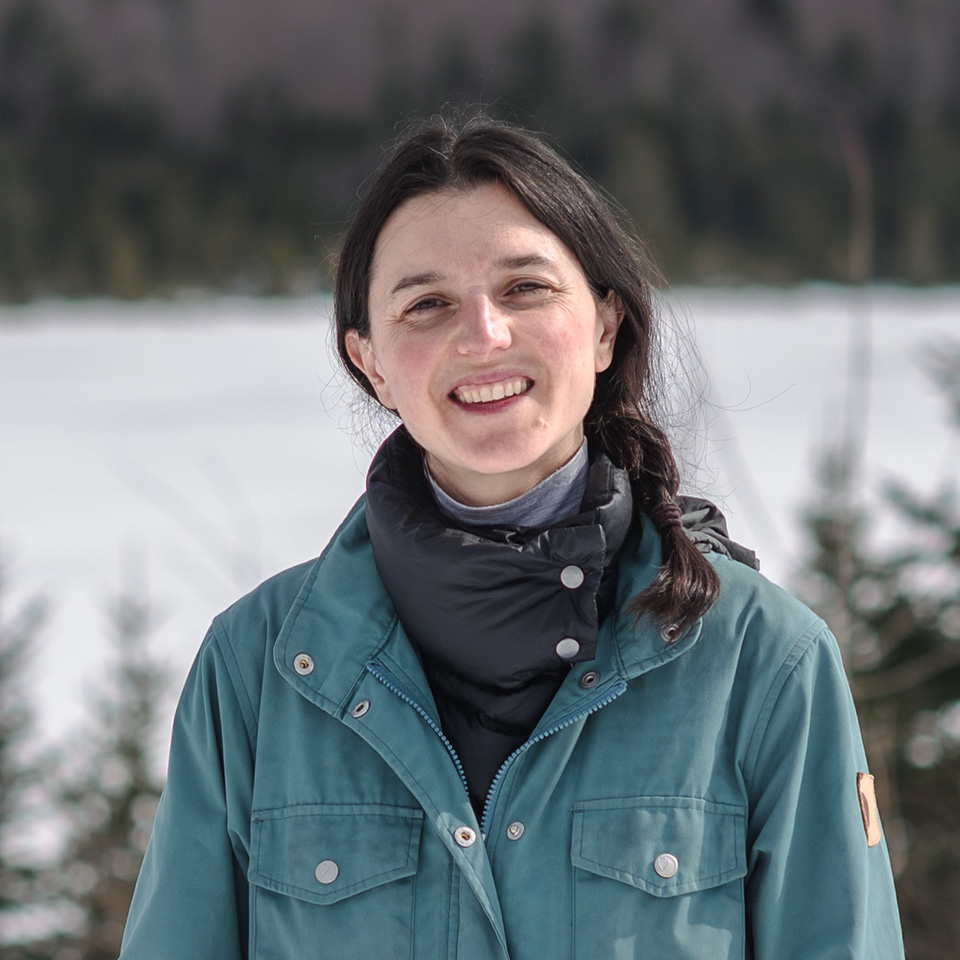

Shelby Semmes

Shelby serves as Vice President for New England with Trust for Public Land. She leads TPL’s teams and mission delivery across Maine, Massachusetts, New Hampshire, and Vermont – a region of vast wilderness and densely populated cities all within a day’s drive. She’s an optimist who sees and believes that urban parks and land conservation play a critical role in building a livable future – not only as green infrastructure, but as vehicles for communities to be agents of change. During her tenure at The Trust for Public Land, she has managed conservation projects in California totaling over 18,000 acres, built the first integrated regional strategy to leverage parks, schoolyards, community forests and iconic public lands to conserve over 50,000 acres and bring a park within a 10-minute walk of 30,000 New Englanders by 2025. She lives in Vermont with her husband and two sons. True to her optimism, she actually loves New England winters.
Shelby Semmes
Vice President for New England, Trust for Public Land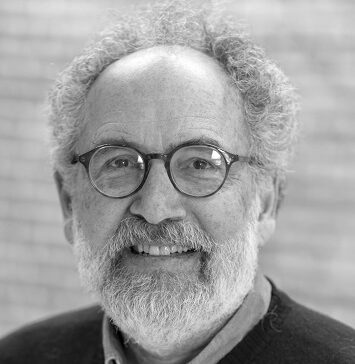

Peter Stein

Peter joined Lyme in 1990 and has significant experience in conservation-oriented forestland and rural land purchases and dispositions. Peter develops conservation sale strategies on properties being evaluated or managed by Lyme and also leads Lyme’s conservation advisory business. Prior to his career with LTC Partners and Lyme, Peter was Senior Vice President of the Trust for Public Land where he directed conservation real estate acquisitions in the Northeast and Midwest. Peter lectures frequently at graduate schools and professional conferences on conservation investment structures and strategies. Peter is the co-founder of the Conservation Finance Network and the International Land Conservation Network. In addition, he is a former Board Chair of the Land Trust Alliance, served as a founding Commissioner of the Land Trust Accreditation Commission. Peter earned a B.A. with Highest Honors from the University of California at Santa Cruz in 1975 and was a Loeb Fellow and received a Certificate in Advanced Environmental Studies from Harvard University in 1981.
Peter Stein
Managing Director, The Lyme Timber Company

Dan Stiles

Dan is the Managing Partner of Stiles.Legal and provides counsel to organizations seeking to make a positive human impact, from the global climate change nonprofit founded and chaired by former Vice President Al Gore to the Colorado Cattlemen’s Agricultural Land Trust. Dan serves on the Board of ICLEI USA and as a mentor for entrepreneurs with the Techstars-TNC Sustainability Accelerator.
Dan Stiles
Managing Partner, Stiles.Legal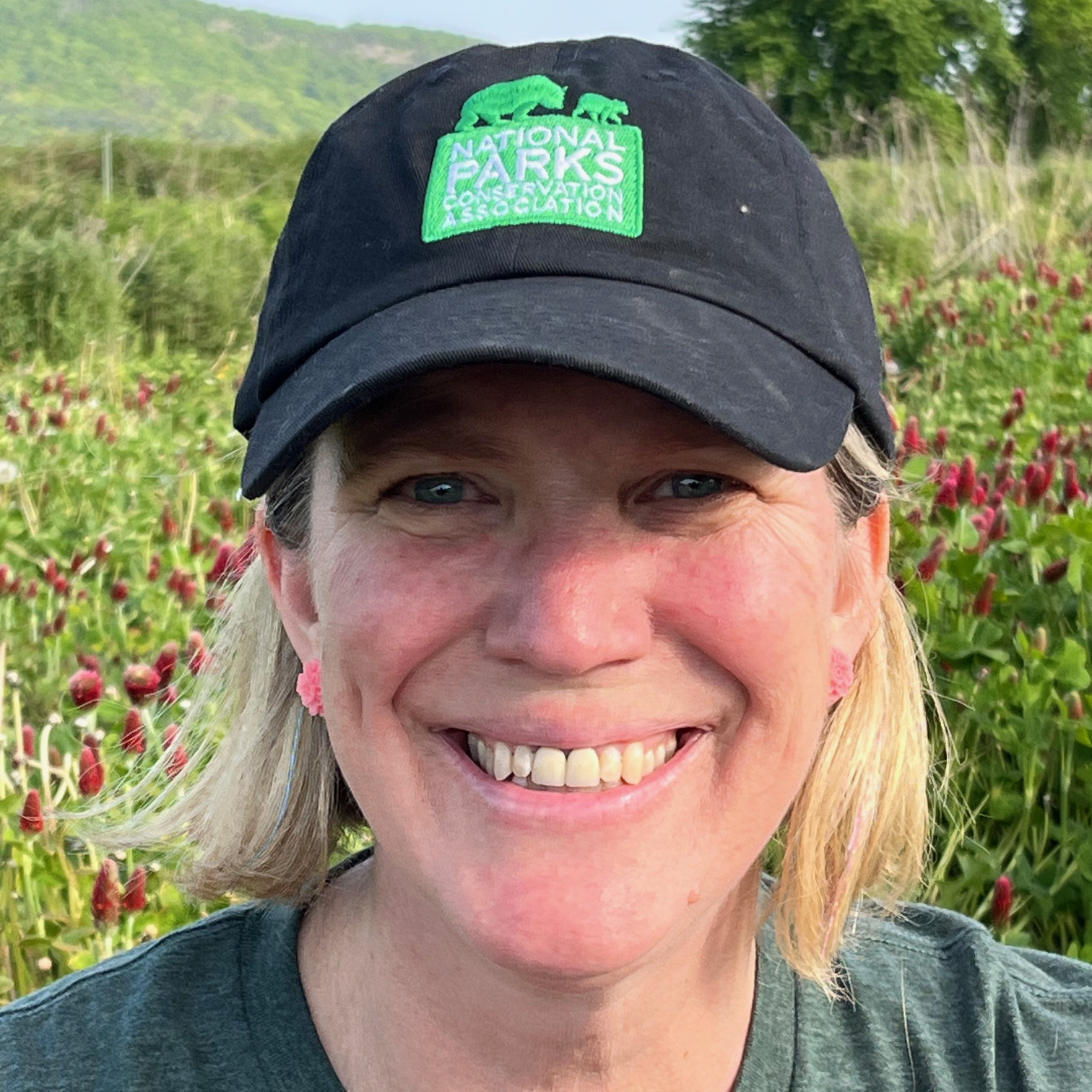

Kristen Sykes

Kristen is the Northeast Regional Director for the National Parks Conservation Association (NPCA). Prior to joining NPCA she was the Southern New England Director of Conservation Projects and Partnerships for the Appalachian Mountain Club where she worked for 18+ years to advance land conservation, trails, and recreational access throughout the Northeast and Mid-Atlantic regions. She serves on the Board of Trustees for the Massachusetts Land Trust Coalition. She has a Master of Science in Environmental Studies from the University of Montana.
Kristen Sykes
Northeast Regional Director, National Parks Conservation Association

Kevin Terry

Kevin Terry is the Rio Grande Basin Program Director for TU’s Western Water and Habitat Program. Kevin started his career as a youngster, stalking trout with his brother and father in northern New Mexico. After a B.S. in Fisheries Science from Oregon State University, Kevin moved to Colorado where he has lived for the past 18 years. Kevin’s work focus is split between collaborative flow restoration programs and work to Protect, Restore, Reconnect and Sustain habitat and populations of Rio Grande cutthroat trout and wild brown trout. You can find Kevin and his family high in the mountains where they love to boat, fish, ski and snowboard, hike, bike, and hunt. He and his family call the Rio Grande headwaters home.
Kevin Terry
Rio Grande Basin Project Manager, Trout Unlimited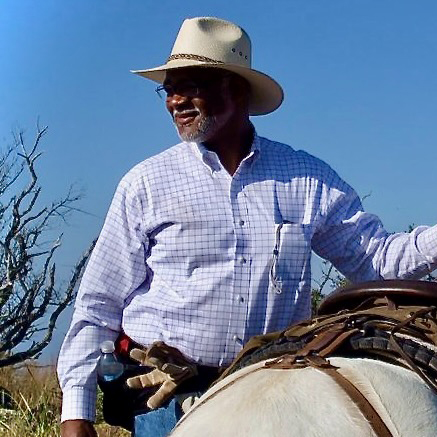

Benjamin Tuggle

Dr. Tuggle is a distinguished conservation leader and diversity champion with over 40 years at the U.S. Fish and Wildlife Service, retiring in 2019 as Assistant Director for Science Applications. He played a key role in fostering collaboration among government agencies, tribes, and private organizations to advance science-based conservation. As Regional Director for the Southwest Region, he managed complex natural resource issues, including endangered species and cross-border conservation efforts. He established key programs such as the Wolf-Livestock Interdiction Program and the first urban National Wildlife Refuge in the Southwest. Earlier in his career, he founded the first Cooperative Wildlife Unit at a Historically Black College, expanding diversity in conservation leadership. He also helped launch the Chicago Wilderness Initiative, promoting urban conservation. Dr. Tuggle continues to advocate for scientific integrity, conservation innovation, and minority representation in natural resource management.
Benjamin Tuggle
Former Assistant Director of Science Applications, U.S. Fish and Wildlife Service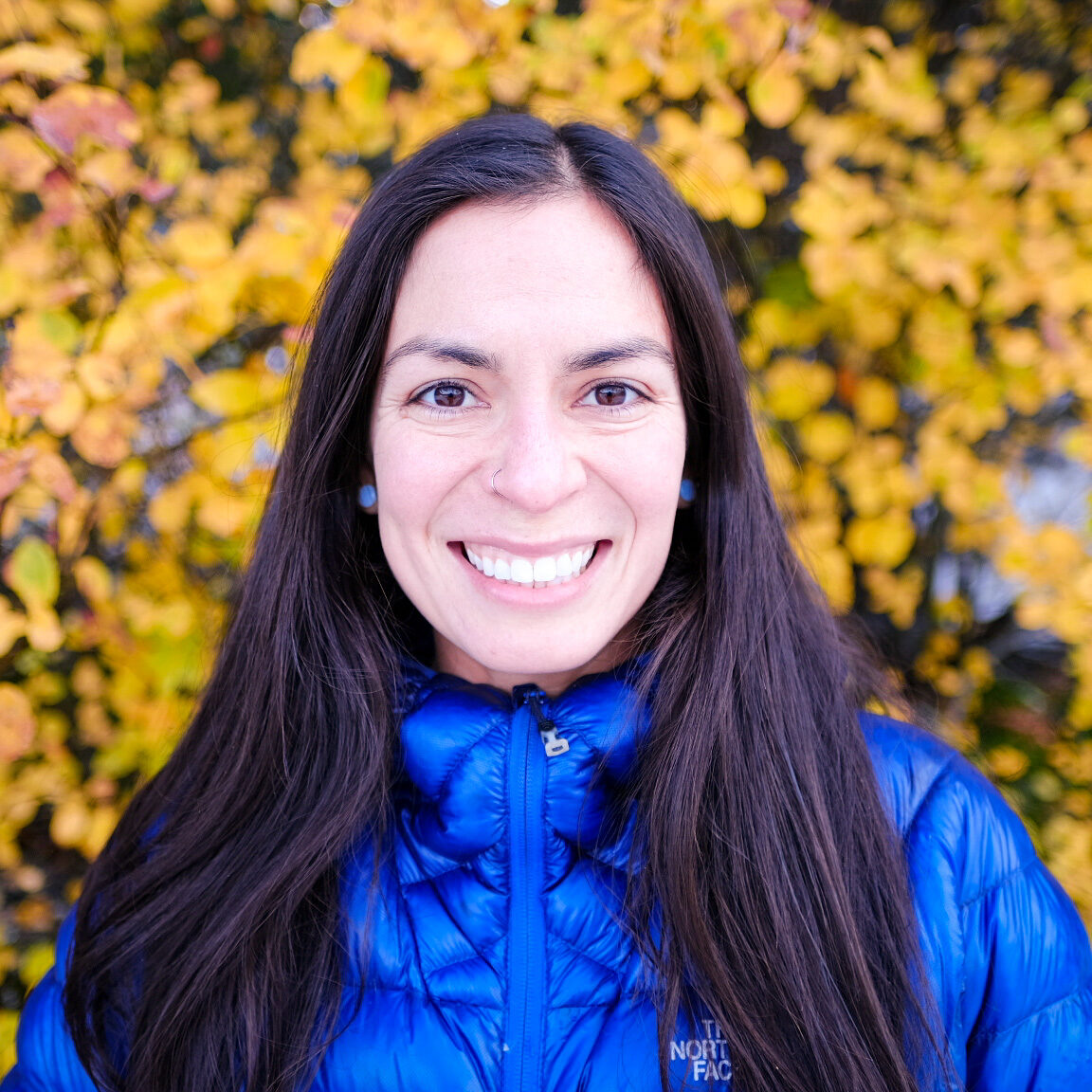

Kate Trujillo

Kate is the Deputy Director at the Honnold Foundation where she develops and oversees HF’s work supporting grassroots organizations that are using solar energy to improve peoples’ lives and reduce environmental impact. Throughout her career, Kate has worked with various nonprofits and foundations at the nexus of social justice, public health and environmental conservation. Her work has always focused on increasing access to basic needs for marginalized communities and spans from strengthening Tribal Court Systems on Native American reservations to developing sustainable agriculture programs in Ecuador. She believes strongly in the power of grassroots movements and in using community-designed solutions to foster sustainable change. Kate is a member of the Laguna Pueblo and received her master’s degree in Public Health from the University of Michigan. In her spare time, Kate can be found running through the forests of the Pacific Northwest, spending time with her friends and family or planning her next adventure.
Kate Trujillo
Deputy Director, Honnold Foundation

Sam Tucker

Sam has twenty-five years of experience in conservation and philanthropy, focused primarily on land and water issues in western North America. He has worked to find solutions to long-standing challenges in landscapes ranging from the Arctic coastal plain of Alaska to the desert rivers of the U.S. Southwest. He recently served as senior advisor for the David and Lucile Packard Foundation, with a focus on its Colorado Plateau strategy. In recent years, Sam was an independent consultant, serving environmental foundations and nonprofits. His clients included the Hewlett Foundation, the Moore Foundation, and The Nature Conservancy. Previously, he managed the Alaska and British Columbia environmental grantmaking portfolio for the Wilburforce Foundation in Seattle. Other professional endeavors included raising butterflies in Costa Rica and serving as program associate at the Consultative Group on Biological Diversity (now the Biodiversity Funders Group).
Sam Tucker
Director, Colorado River Sustainability Campaign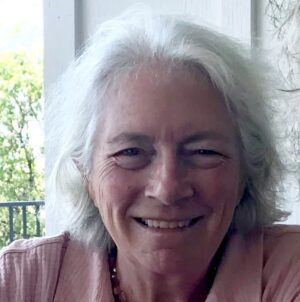

Rio de la Vista

Rio de la Vista works to serve land, water and communities. Most recently, as the founding Director of the Salazar Rio Grande del Norte Center at Adams State University in Alamosa, Colorado, she aimed to help “grow the next generation of conservation and water leaders.” Rio previously worked with the Rio Grande Headwaters Land Trust for nearly 20 years, on the Rio Grande Initiative, conserving over 25,000 acres of land and water along the Rio Grande and the Conejos River. She was honored with the National Wetlands Award in 2011 for her work in the San Luis Valley. In 2020, she was recognized with a Distinguished Service Award by the Regents of the University of Colorado, for her years of work in conservation. In 2022, she was named a Conservation Hero for Advocacy by the Keep It Colorado coalition of land trusts. Rio is grateful to live on a family ranch at the headwaters of the Rio Grande in Colorado, and treasures time spent in the mountains and on rivers.
Rio de la Vista
Former Director, Salazar Rio Grande del Norte Center, Adams State University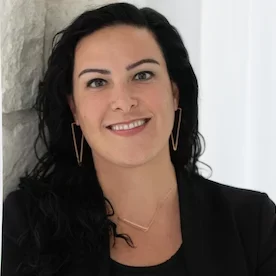

Emily Warren Armitano

Emily is responsible for leading the design of the land and water program strategies and managing a grants portfolio to achieve the foundation’s sustainability goals.
Emily joined the foundation in 2019, bringing with her deep experience in community engagement, movement-building, connecting research to action, and a commitment to equity and social justice. Previously, she held leadership positions at the Meadows Center for Water and the Environment and Texas Parks and Wildlife Department, where her focus was on sustainable natural resources management. She also served as a member of the management team at United for Iran, working to improve human rights, support civil society, and increase civic engagement in Iran. In addition, Emily worked as part of the global management team for a United Nations Development Program aimed at reducing the volume and toxicity of health care waste in eight low-income countries across the globe.
Emily Warren Armitano
Director, Land Conservation and Water Programs, Cynthia and George Mitchell Foundation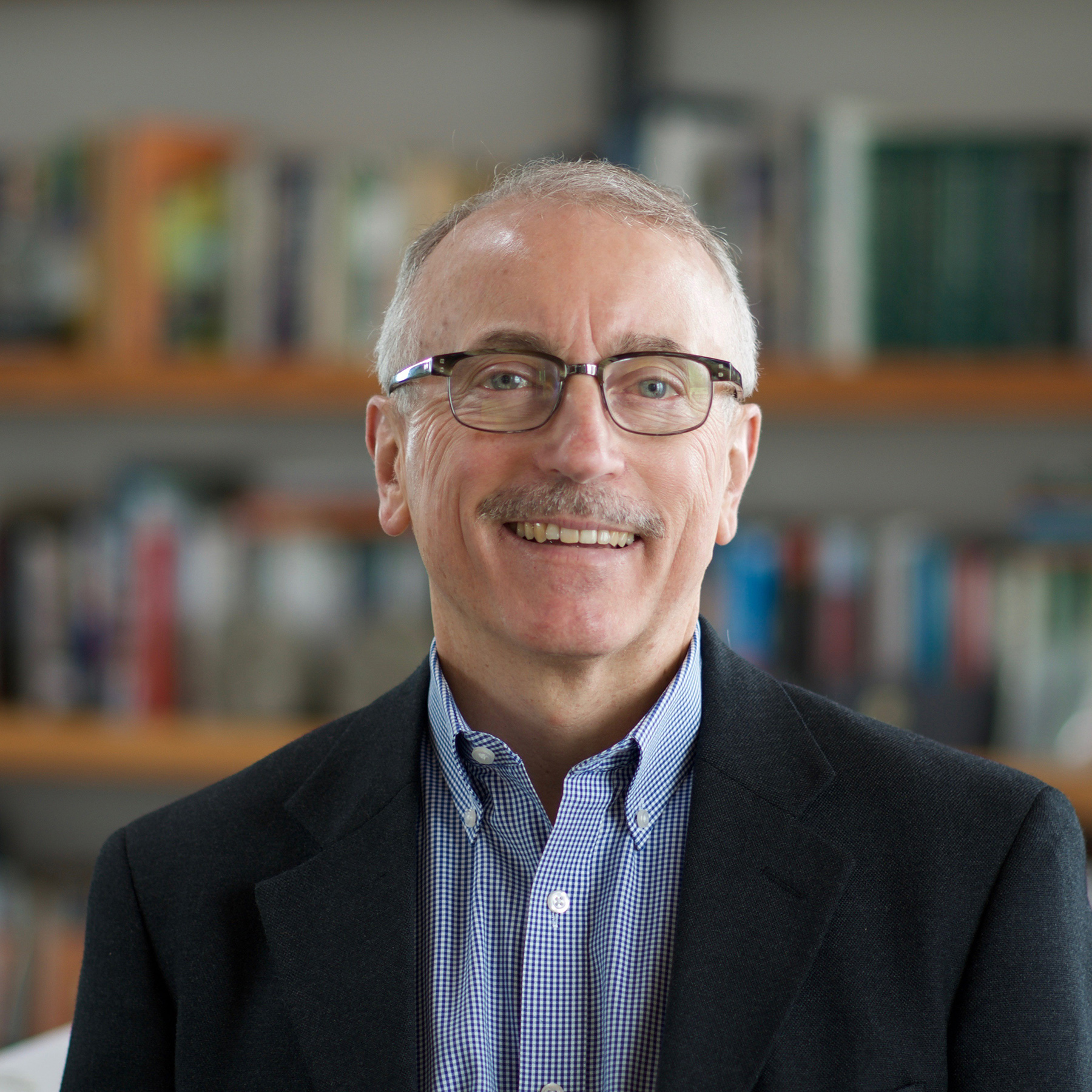

Steven Whitney

Steve Whitney is Senior Program Officer with the Seattle-based Bullitt Foundation. He is engaged on issues of regional planning and landscape resilience, specifically the protection of natural infrastructure and associated ecosystem services in the metropolitan regions of the Pacific Northwest. Previously he was on the staff of The Wilderness Society, first as director of its National Parks Program in Washington D.C., and later as Northwest Regional Director and Deputy Vice President. His early career included work as a land-use planning consultant, and as a congressional aide to then Representative Leon Panetta of California. He has served as board member and chair of the Biodiversity Funders Group and the Washington Environmental Council, and served on the City of Alexandria, Virginia’s Environmental Policy Commission. Steve holds a Bachelor of Science degree from Utah State University, and a Master of Arts in Architecture and Urban Planning from the University of California, Los Angeles.
Steven Whitney
Senior Program Officer, Bullitt Foundation

Estrella Woods

Estrella joined the Great Outdoors Colorado (GOCO) team as the Southwest program officer in June 2021. This position serves thirteen counties in the southwest region of Colorado in the development of projects seeking GOCO partnership and funding. Her past work experience is rooted in the outdoor recreation and travel industries as well as fundraising for nonprofits focused on health and human services. Estrella studied Language Studies at the University of California Santa Cruz and completed an MBA with Colorado Mesa University in Grand Junction. Originally from Maine, Estrella has lived on the Western Slope of Colorado for over twenty years. Above all, she enjoys being outside in nature, sharing her passion for outdoor recreation, and being a steward of the land in SW Colorado.

